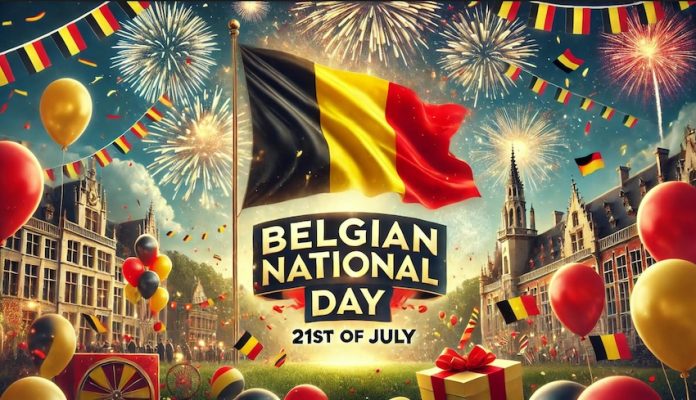“The EU and NATO, that’s all of us! Because they embody the values of freedom, democracy and the rule of law that we need to defend every day.”
Edited by Anna Popper
To celebrate the Belgian National Day, H.E. Mr. Jeroen Vergeylen, the Ambassador of the Kingdom of Belgium to Hungary hosted a grand reception at his residence. The event brought together illustrious guests, including officials of state institutions and NGOs, members of the diplomatic corps, representatives from business, cultural and academic circles, as well as the Belgian community in Hungary and many friends of the country.












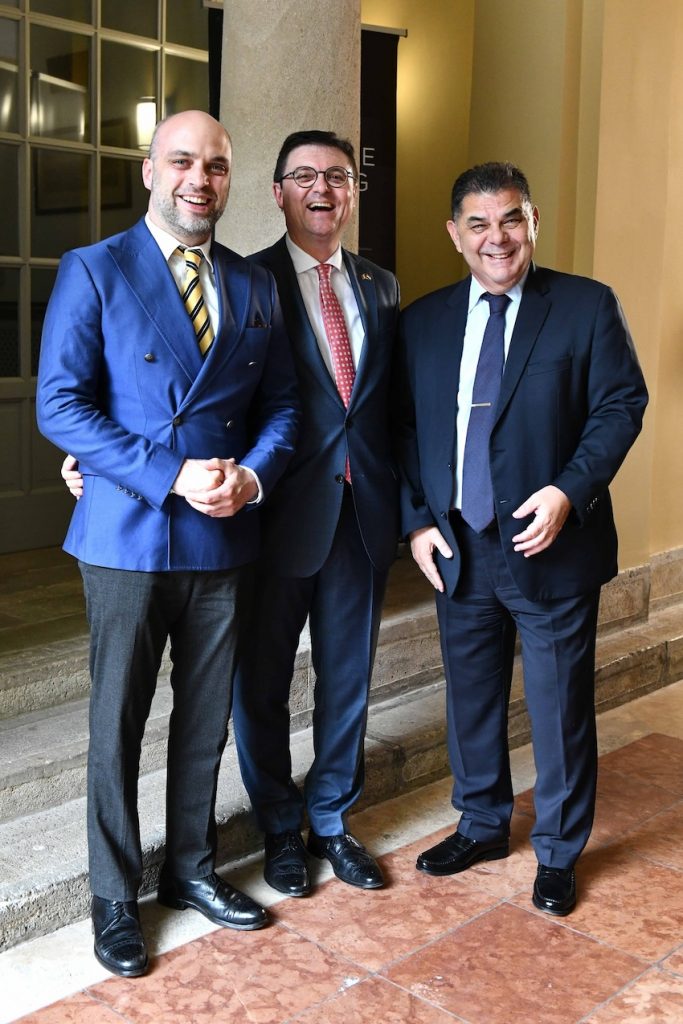

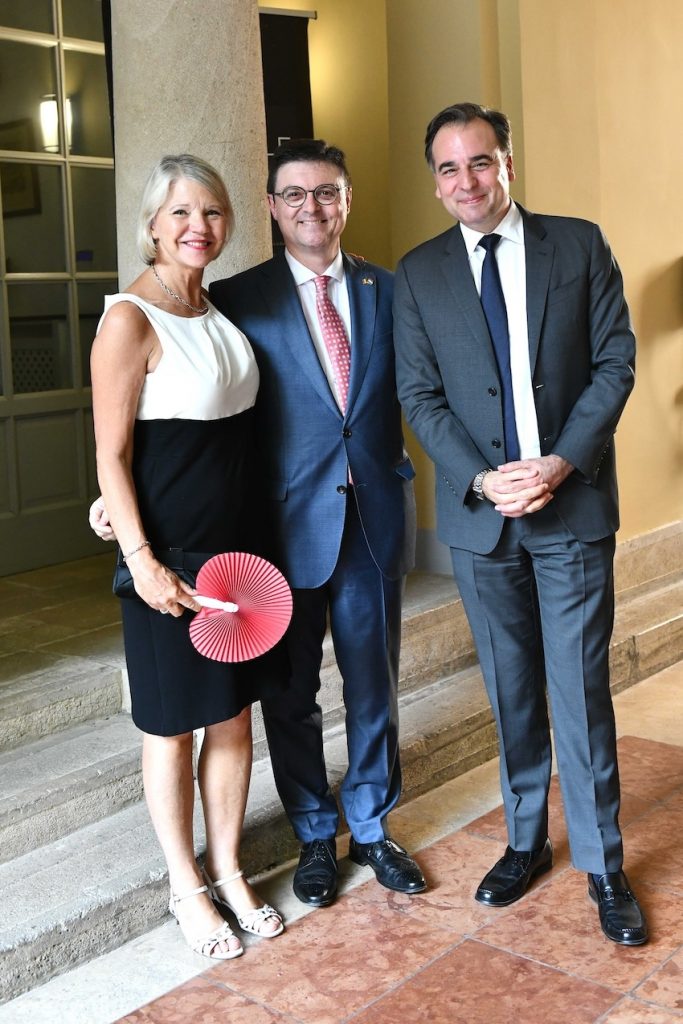
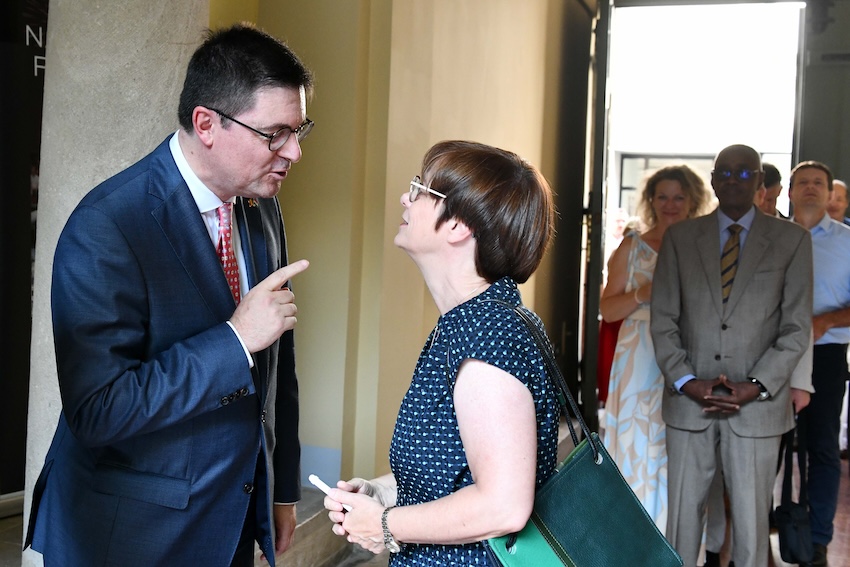
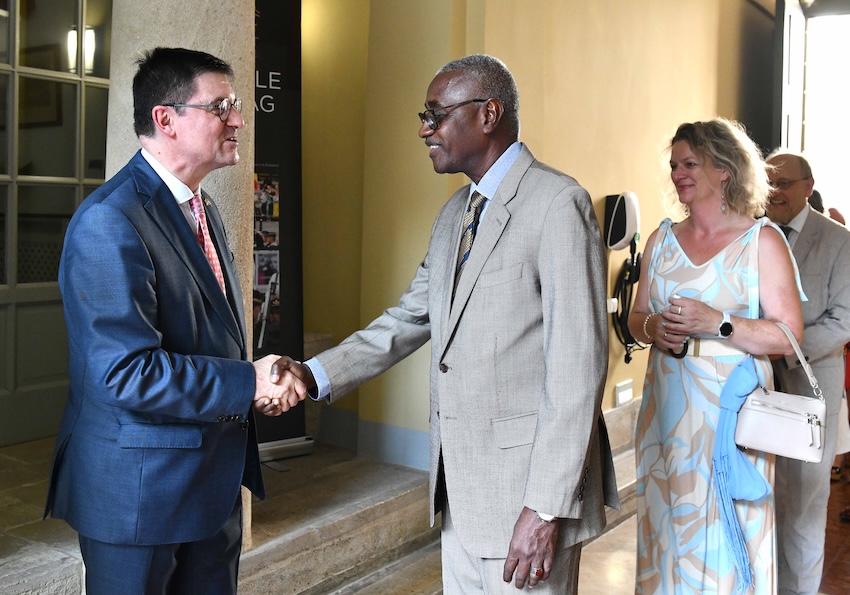
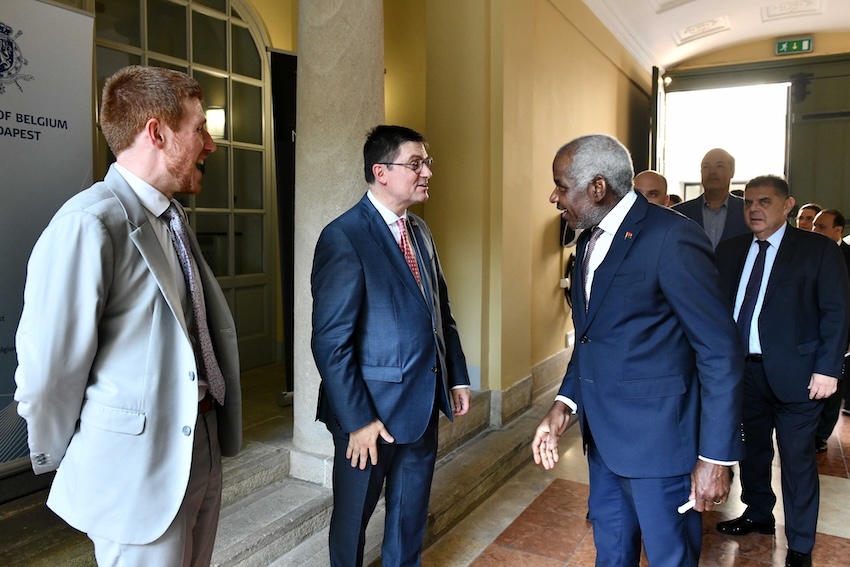
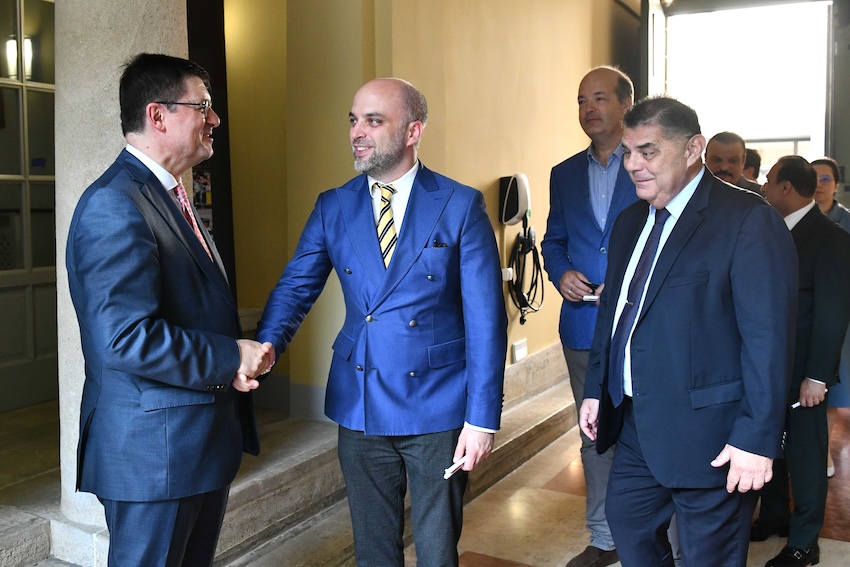
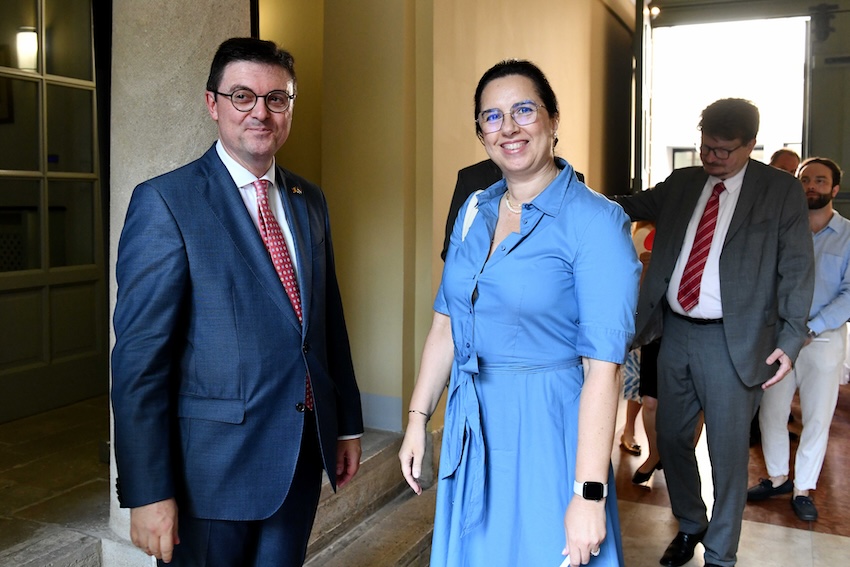
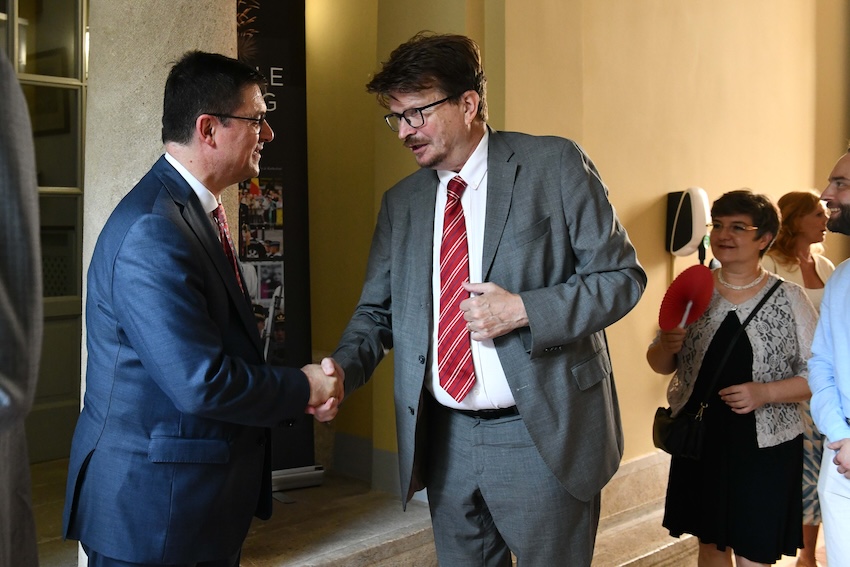
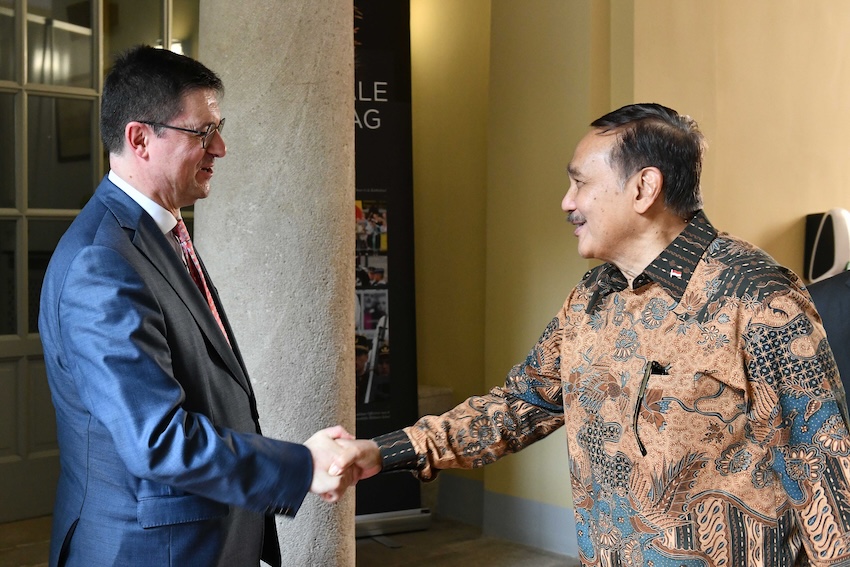
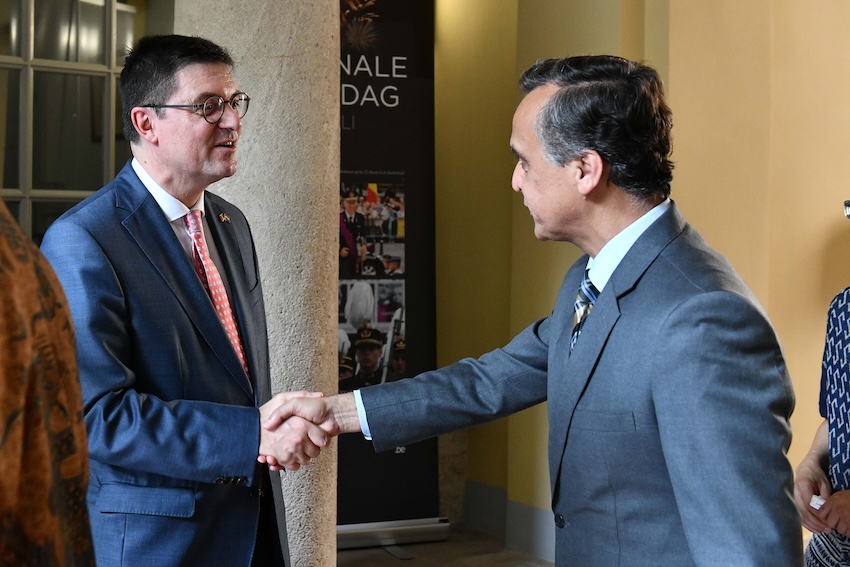
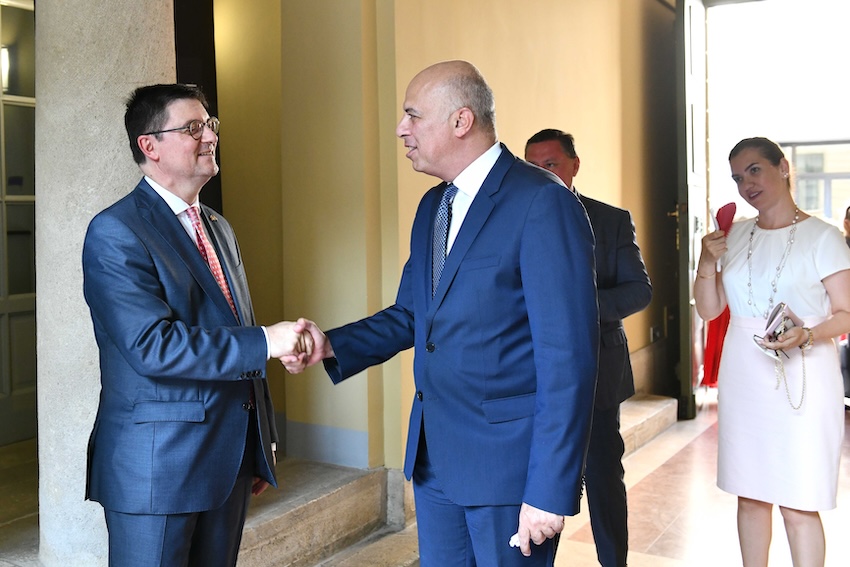
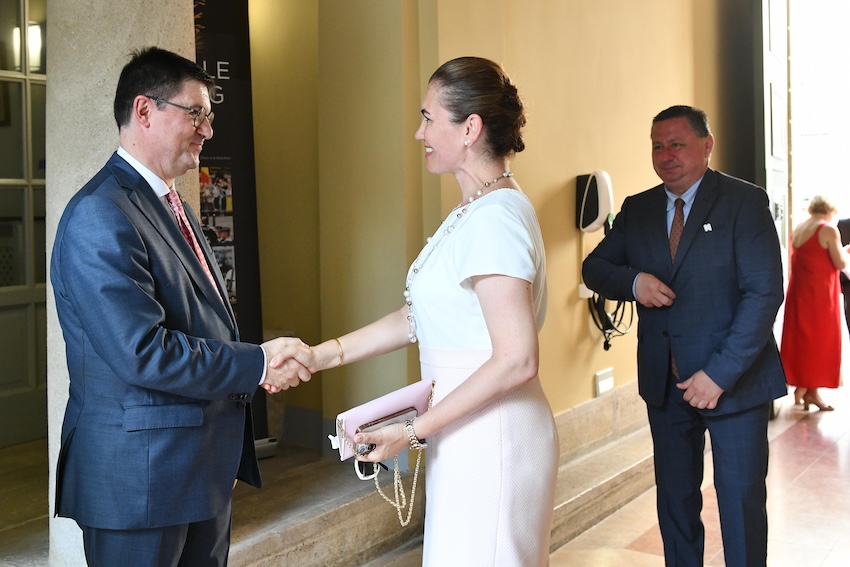
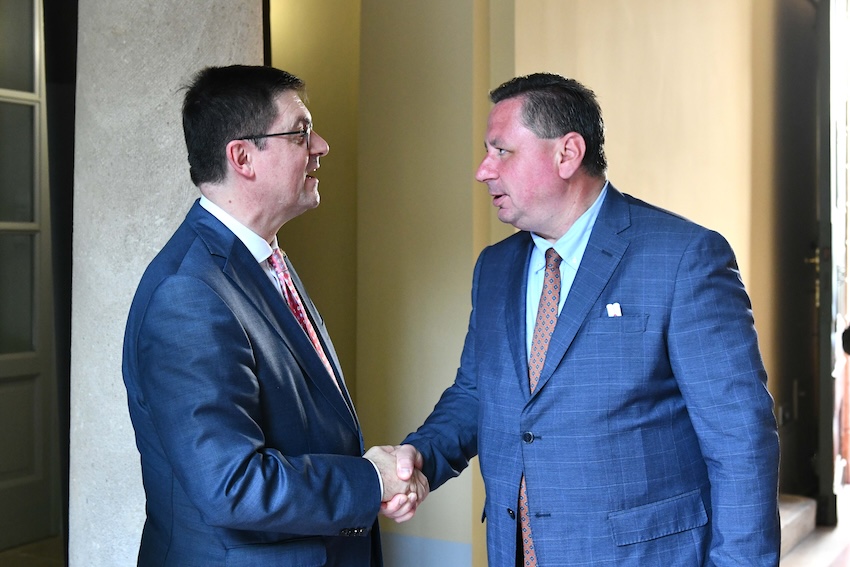
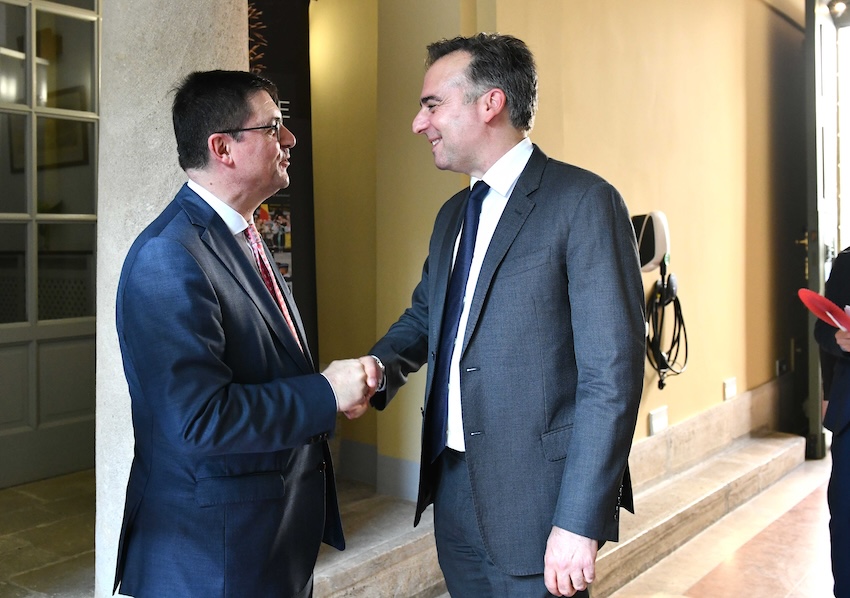
The gathering marked a significant occasion in the Belgian calendar, commemorating the swearing-in of Belgium’s first monarch, King Leopold I, on 21 July 1831, a pivotal moment in the nation’s history that is celebrated as their National Day.
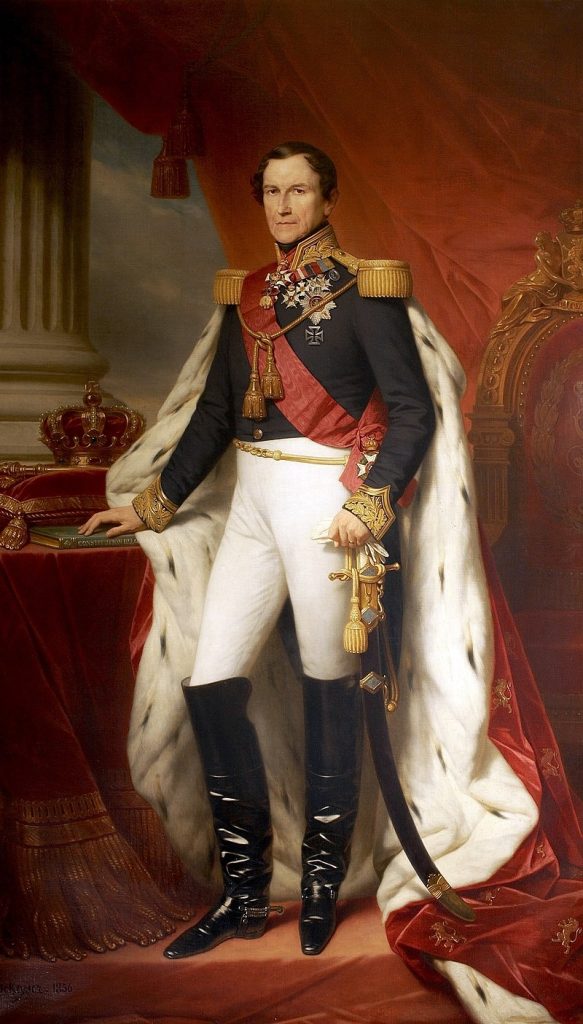
Belgium declared its independence on 4 October 1830, following the successful Belgian Revolution. This uprising led to the birth of the nation, with the National Congress opting for a constitutional monarchy as the form of government. Belgian National Day holds deep historical significance, reflecting the country’s path to sovereignty and the establishment of its monarchy.
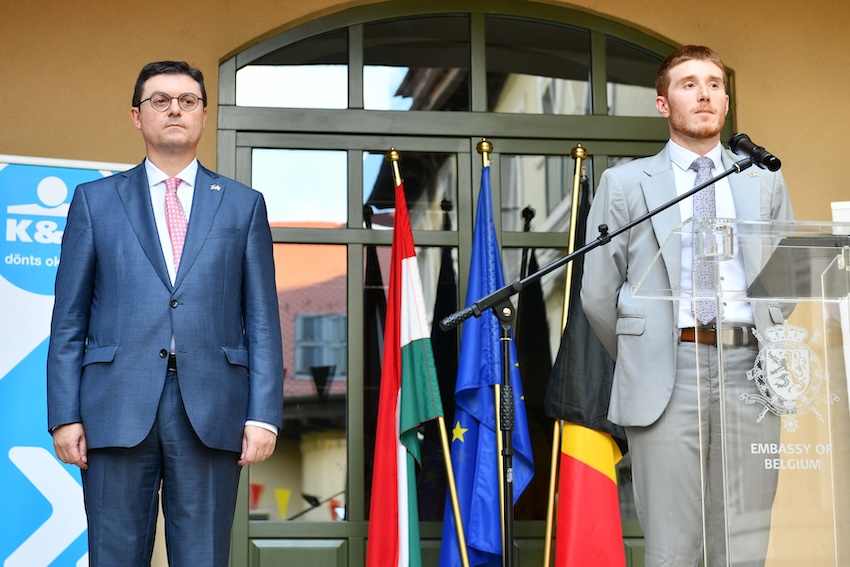
After the national anthems of the Kingdom of Belgium and Hungary were played, Ambassador Vergeylen addressed the invitees, first in Hungarian with remarkable pronunciation. His linguistic talent and dedication, honed under the guidance of a demanding Hungarian teacher, were greatly appreciated by the audience, especially considering that the Head of Mission took office less than a year ago:
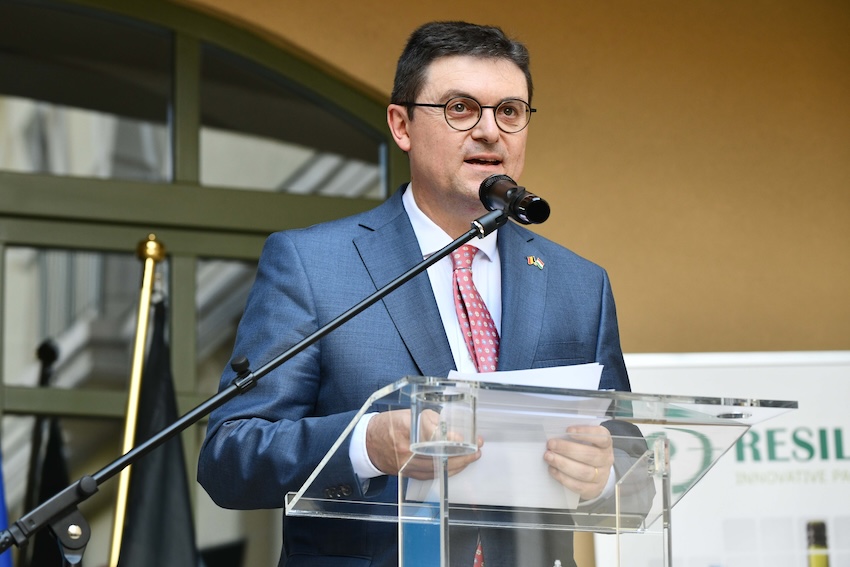
“Hölgyeim és Uraim! Kedves vendégeim! Kedves barátaim!
Üdvözlöm önöket a Belga nagykövetségen. Nagyon örülök, hogy a hőség ellenére ilyen sokan eljöttek. Sajnos a belga csokoládé elolvadna, de van megoldás! Meghívjuk önöket egy jó belga sörre. (Welcome to the Belgian Embassy. I am very pleased that so many of you came despite the heat. Unfortunately, Belgian chocolate would melt, but we have a solution! We invite you to enjoy a good Belgian beer.)
Excellencies, Distinguished guests, Dear Friends of Belgium and Hungary,
A very “warm” welcome to the Belgian Residence and Embassy on the occasion of our National Day reception. You are in a historic place. This is where our Embassy was established when it opened in 1922. If it’s too hot, I can always recommend a stay in the beautiful and cool Belgium, where we have a pleasant 25 degrees today, sun and surprisingly no rain, at least not today.
Let me start by thanking the Romano Glaszo music ensemble for their beautiful rendering of our national anthems. Romano Glaszo has performed in several European countries already, including Belgium and the European Parliament in Brussels, and we are delighted to have them with us.
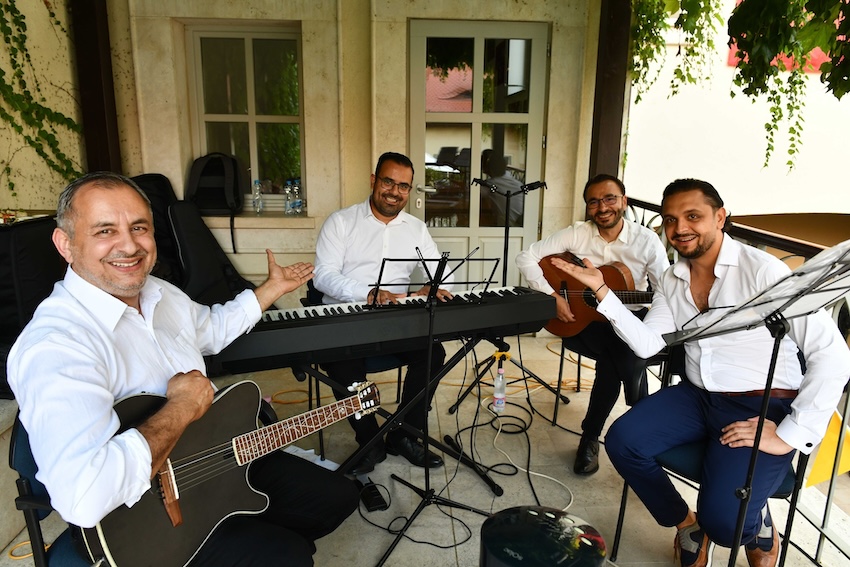
193 years ago, on 21 July 1831, the first King of the Belgians, Leopold I, took his oath on the Belgian Constitution and became the first constitutional monarch, among the first in Europe. Our constitution was modern and surprisingly liberal for the time. This is what we celebrate every year as our National Day. A monarch subjecting to a parliament as the emanation of the people, and guaranteeing fundamental rights and individual freedoms on the basis of the rule of law.
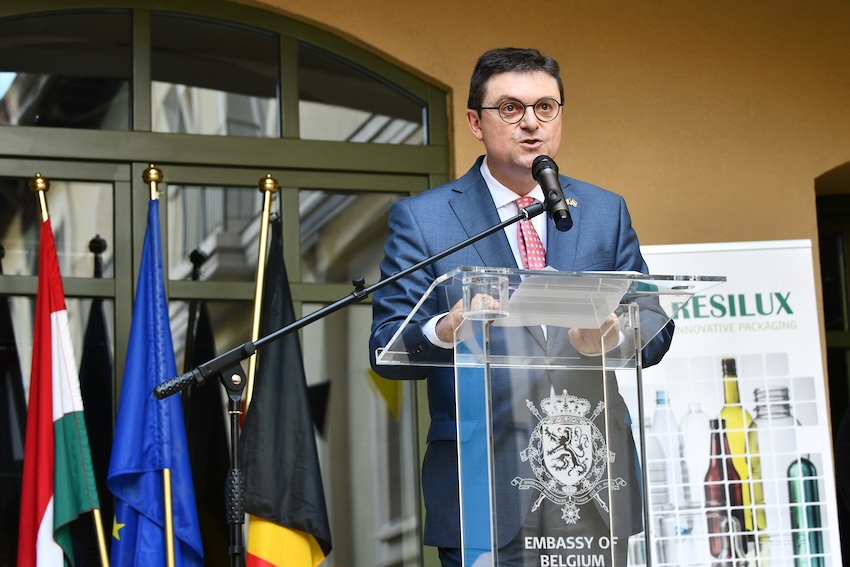
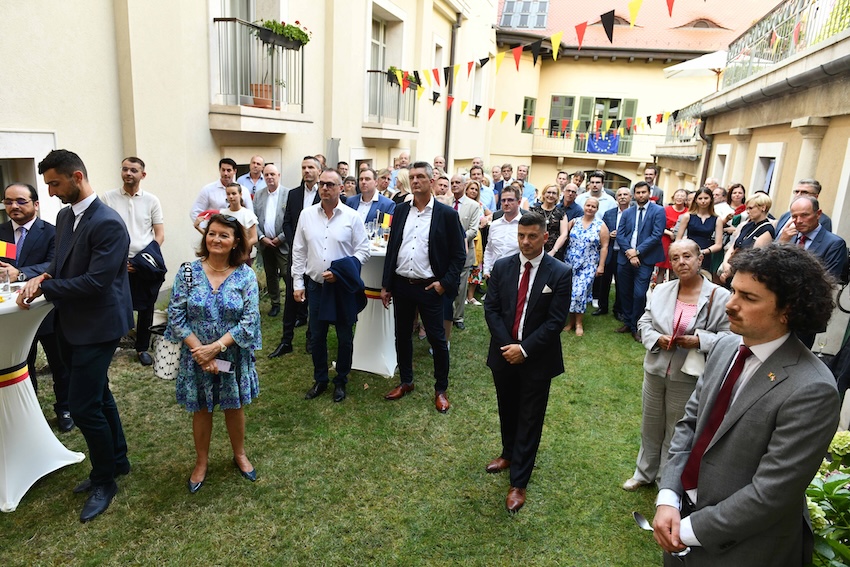
Certainly we may have to compromise a lot to make our country work, but we are proud of our country, of our cultural and linguistic diversity, of our values, and we cherish them profoundly. And many others have enjoyed the freedoms that our country was able to offer. That includes thousands of Hungarian citizens who arrived in Belgium after several revolutions, after the first and the second World Wars, and again in 1956. The leader of the Hungarian Revolution 1848-1949, Lajos Kossuth fled to Brussels before moving on to the United States, but left his mother in Brussels, where she found her last resting place.


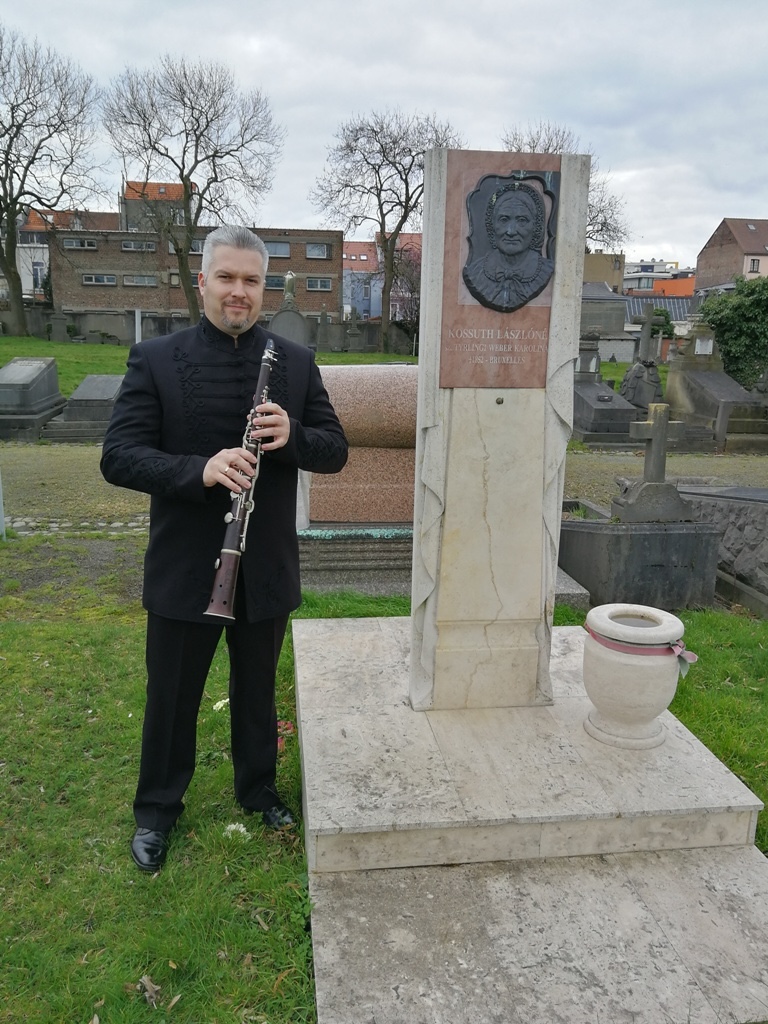
The Hungarian writer and freedom fighter Miklós Jósika left Hungary in 1849 and spent 15 years of his life in Brussels, where he wrote 10 of his novels. Sándor Lámfalussy (1929-2015), who – like 6,000 other Hungarians – left Hungary for Belgium after the catastrophe of 1956, completed his studies in Belgium and later became the founding father of the Euro, which celebrates this year the 25th anniversary of its launching, and the EU single currency is one of the successes of European integration.
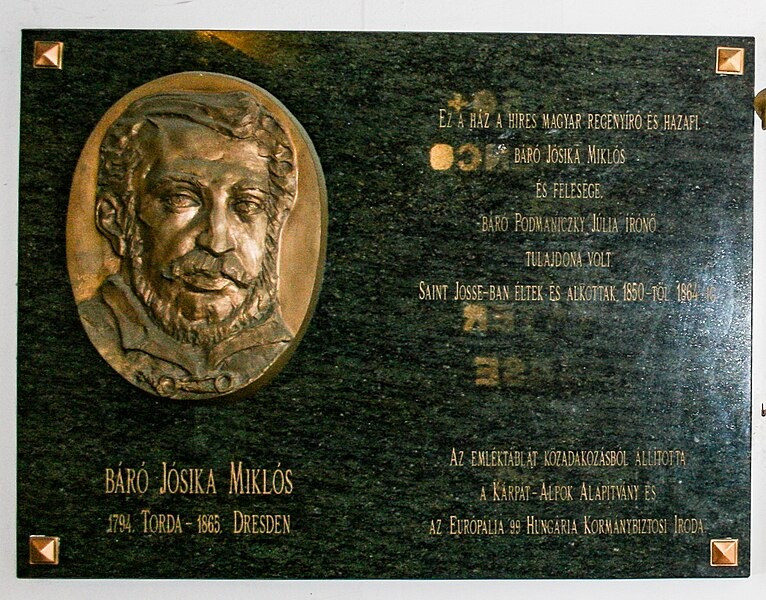
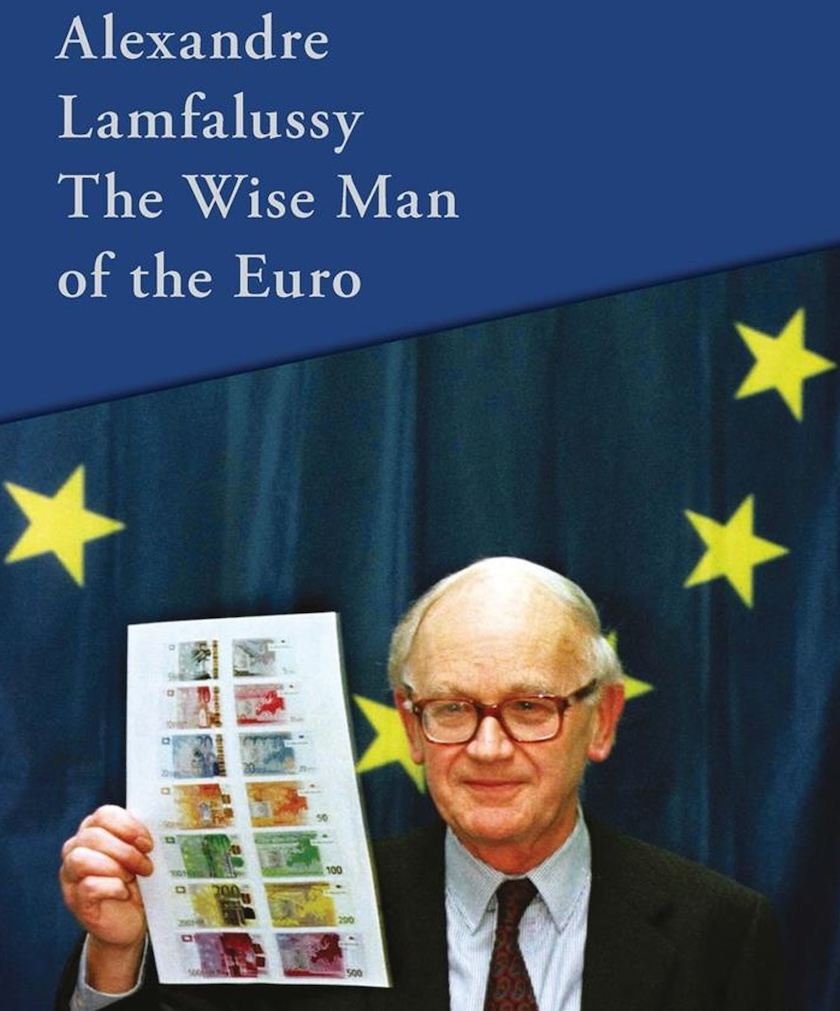
The point I am trying to make here is that “Brussels” is not the “source of all evil”. It is also the Belgian capital, a city that has always had close links with Hungarian history and that has always been open, diverse and welcoming to many, including many Hungarians, and will remain so in the future. Today, Belgium and Hungary are partners in the European Union and allies in NATO. We benefit from the security, stability and prosperity that the EU and NATO have provided without failing for more than 7 decades.
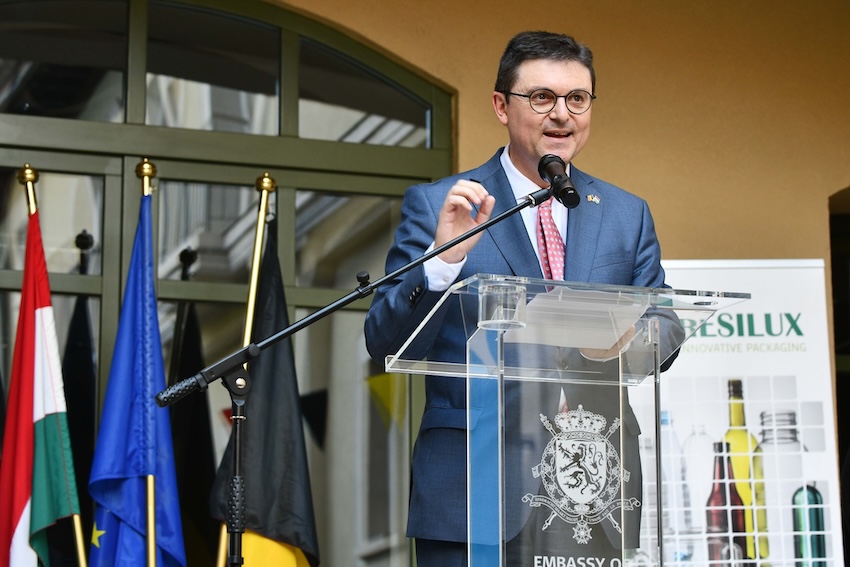
Belgium hosts NATO Headquarters and the main EU institutions with pride but also with a sense of responsibility, conscious of the fact that we created these institutions with our partners to protect our values and freedoms. But let us not forget that these institutions require our daily care. The EU and NATO, that’s all of us! Because they embody the values of freedom, democracy and the rule of law that we need to defend every day.
That is why Belgium remains committed to supporting Ukraine as long as it takes in its defence against an appalling war of aggression, but also against an assault on our own values. It is also why we need to exert daily efforts to gain and earn the trust of all our partners and allies. This inspired us during the Belgian EU Council Presidency in the first half of this year.
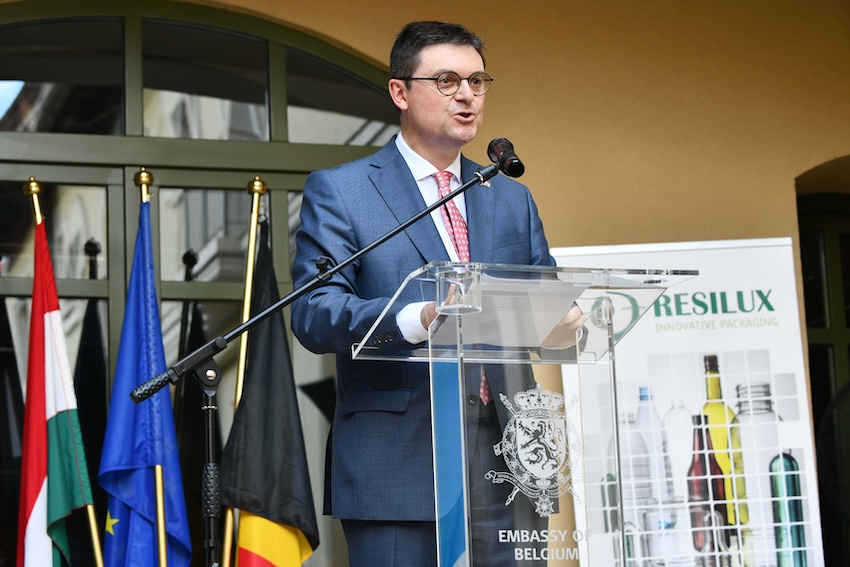
Dear Friends, I am happy to report that our bilateral trade with Hungary amounted to 7 billion euros last year and that Belgium remained the 14th investor in Hungary, employing more than 9,000 Hungarians. This is only possible thanks to the EU’s single market, another great achievement of European integration that has brought so many advantages to both our countries. Belgium and Hungary are both open economies, dependent on trade and investment, and characterized by a closely knit fabric of SMEs and family businesses. We have an interest in cooperation to ensure a level playing field that provides transparency, stability and predictability for our companies.
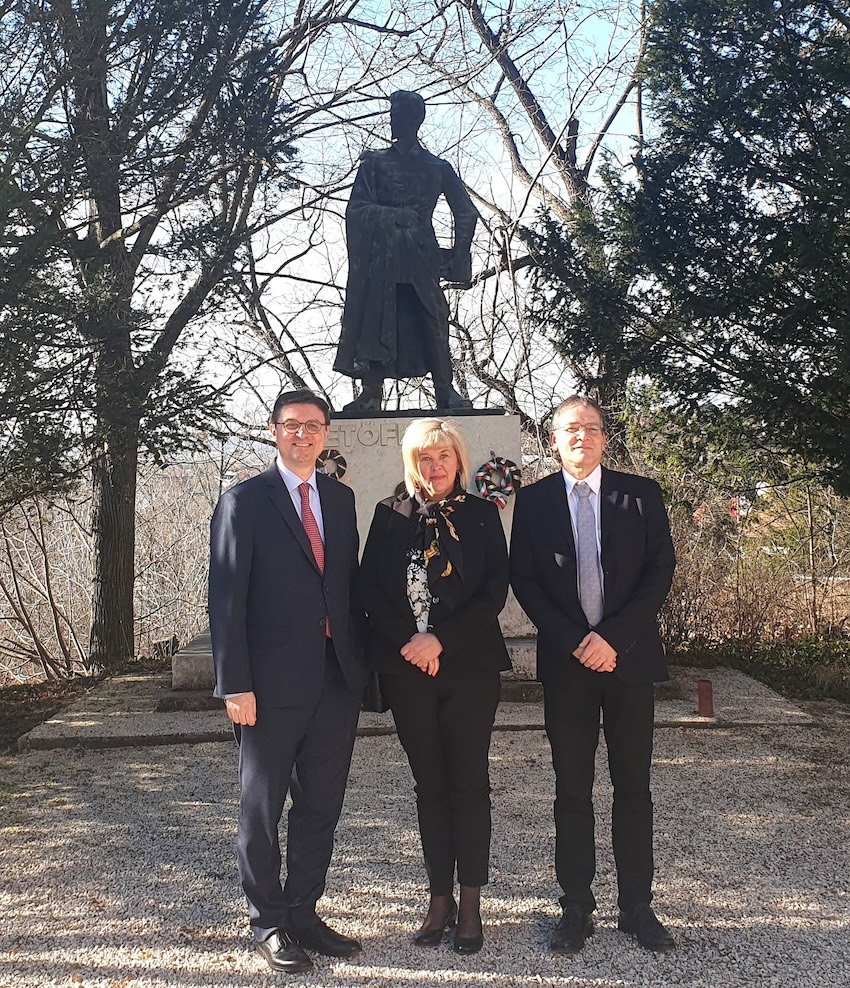
A highlight in the past year were the school exchanges. The students of the Petőfi Sándor Gimnázium in Aszód visited their partner, the Saint Roch Institute in Theux, a city in Belgium that was horribly hit by floods three summers ago. I was very touched by the Hungarian solidarity. The students of the Vetési Albert Gimnázium in Veszprém visited their partner school, the Saint Bernard College in Oudenaarde. People-to-people exchanges, especially of young people, remain the core of our relationship and we are delighted that so many Hungarians want to travel, study and work in Belgium, and learn our languages. Regrettably, the knowledge of Hungarian remains suboptimal among Belgian citizens.
Sport unites, too. We congratulate Spain for its well-deserved victory as the new European Football Champions. Alas, our National Football Team, the Belgian Red Devils, did not get very far this time. However, the young Belgian rider Thibau Nys made us all proud by winning the Cycling Tour de Hongrie this spring, (the youngest winner of Tour de Hongrie).

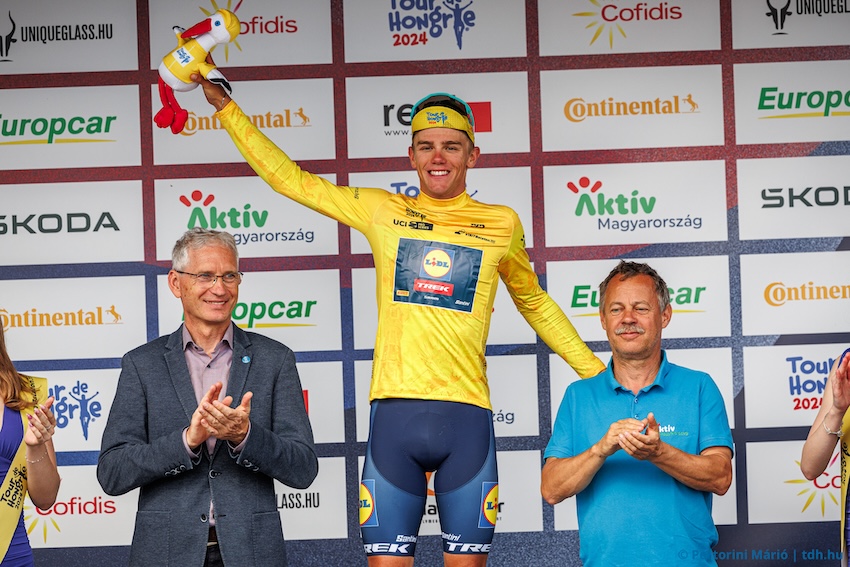
More is coming. I am grateful to MÜPA for hosting the aptly named “Bridging Europe Festival” this September, dedicated to Brussels, which will contribute to bridging the distance between Budapest and Brussels. The Brussels Jazz Orchestra amongst many others will come over to help doing that.
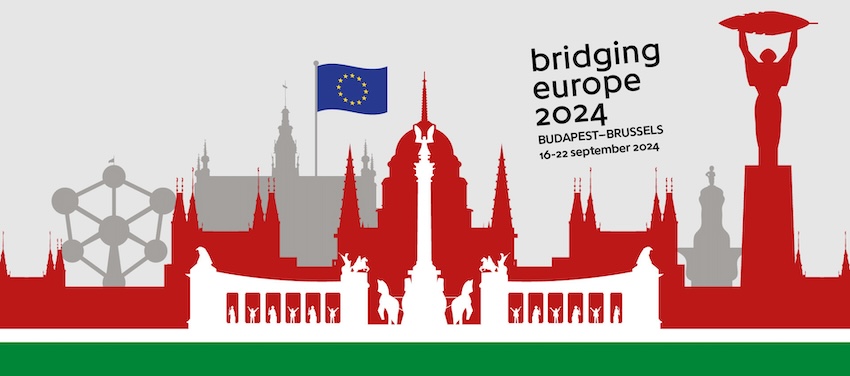
In November, the Royal Philharmonic Orchestra of Liège, conducted by its Hungarian musical director Gergely Madaras, will perform in Budapest, Pécs and Veszprém. And the Flemish-Dutch Cultural Centre in Debrecen is planning an exhibition showcasing fascinating historical links between Debrecen and the Low Countries.
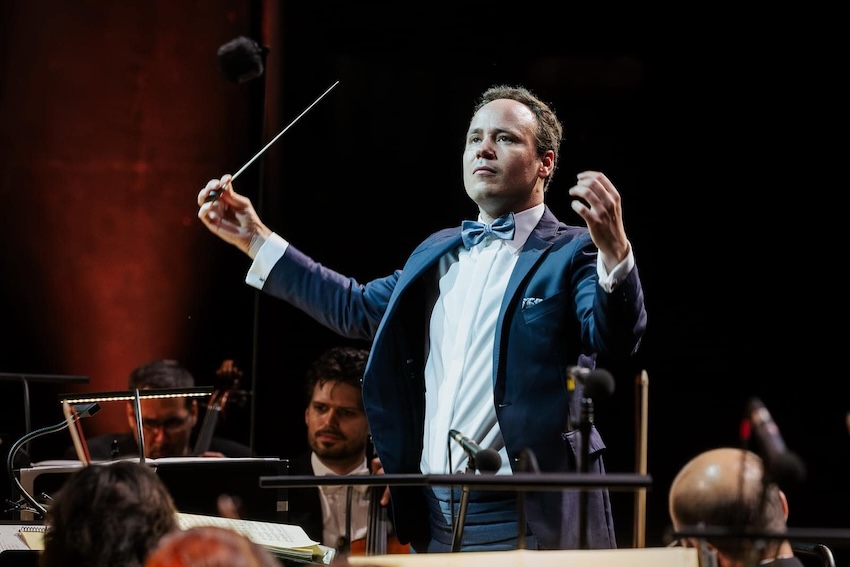
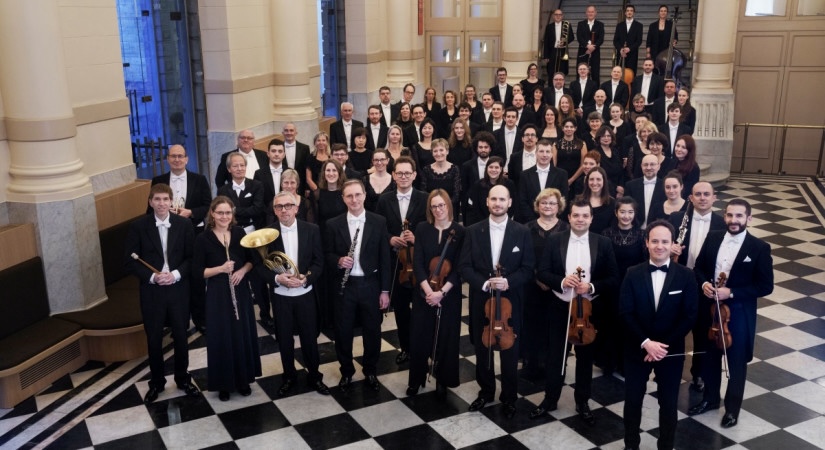
Dear friends, the first year of my assignment in Budapest is almost over and it has been a fantastic experience. It’s a tremendous privilege to live in one of Europe’s most beautiful and diverse capitals. I would like to take this opportunity to express my deepest thanks to the Hungarian authorities and to all of you for your generous welcome, valuable support and precious advice.
I would also like to thank our numerous partners and sponsors, the members of the Belgian Business Club in Hungary – BELGABIZ for making this reception possible with their generous contributions: Resilux, K&H Bank and Insurance, VPK, Beltaste, BNP Paribas, Gosselin, Soudal, SIC Hungary, Three Corners Hotels & Resorts, Vizmeg Law Firm Borsodi, Belga Sörmester.
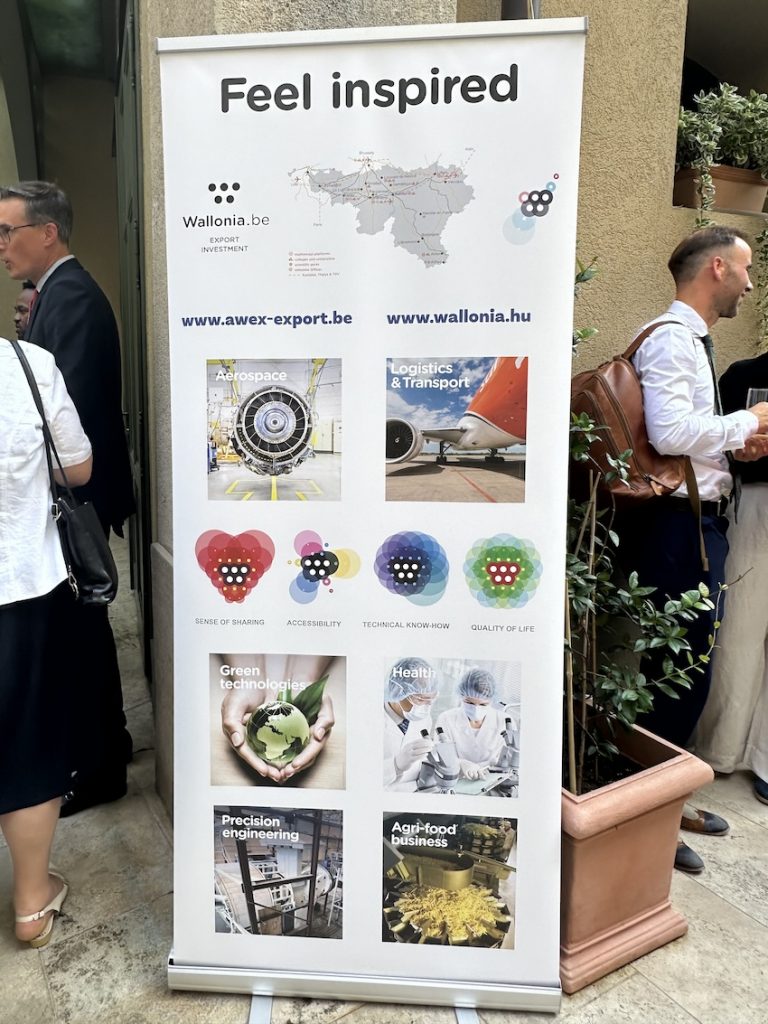
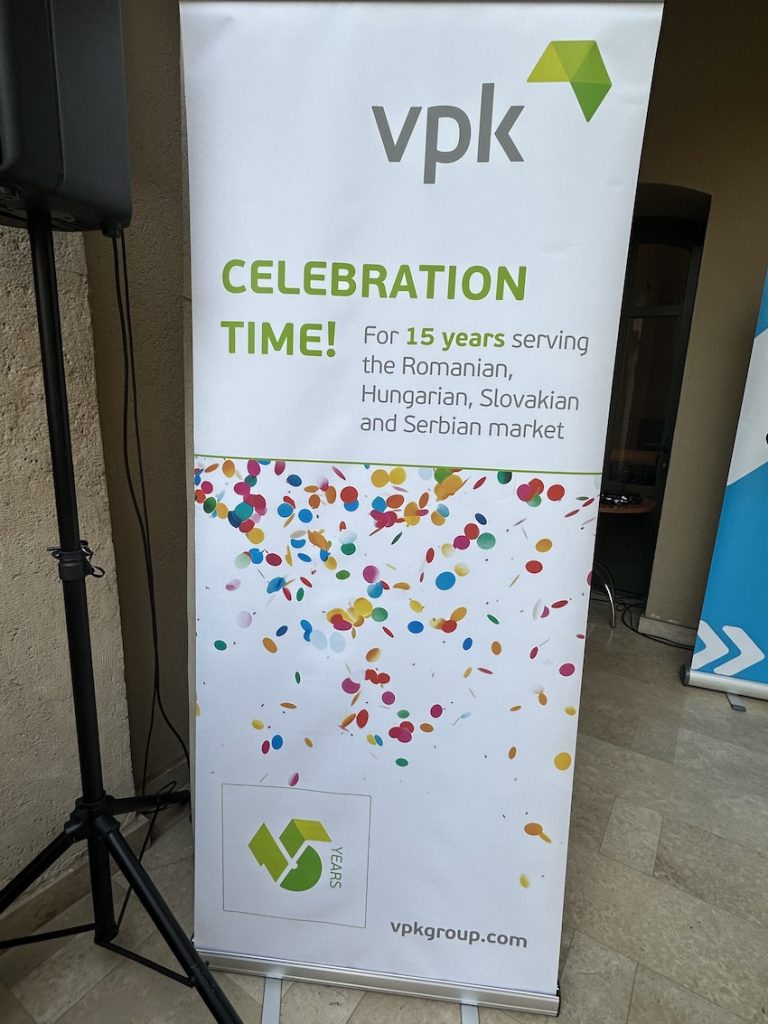
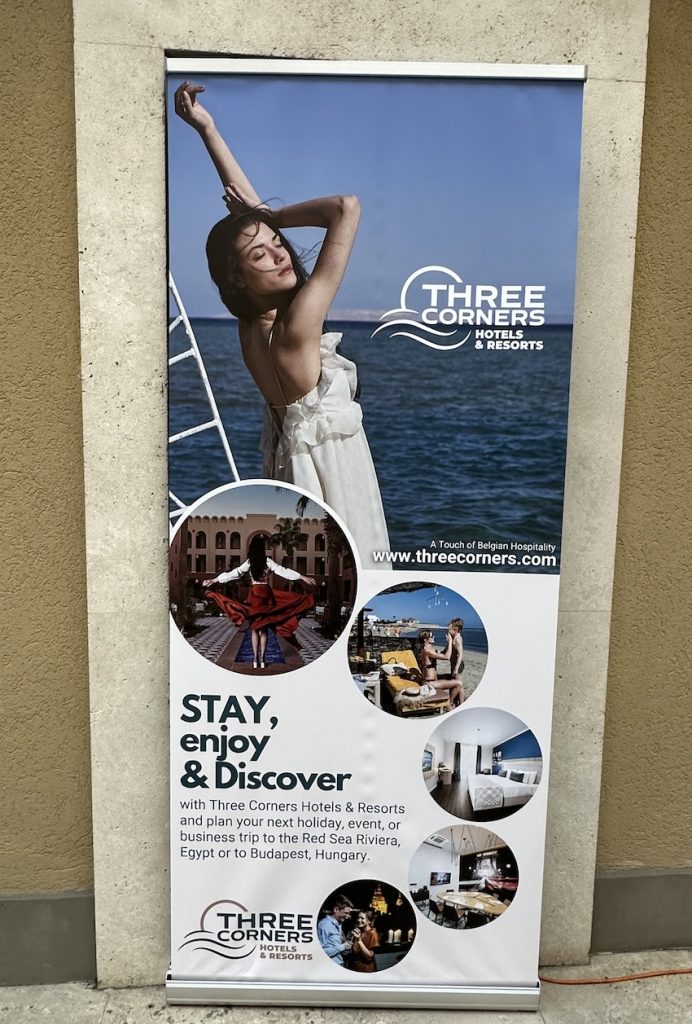
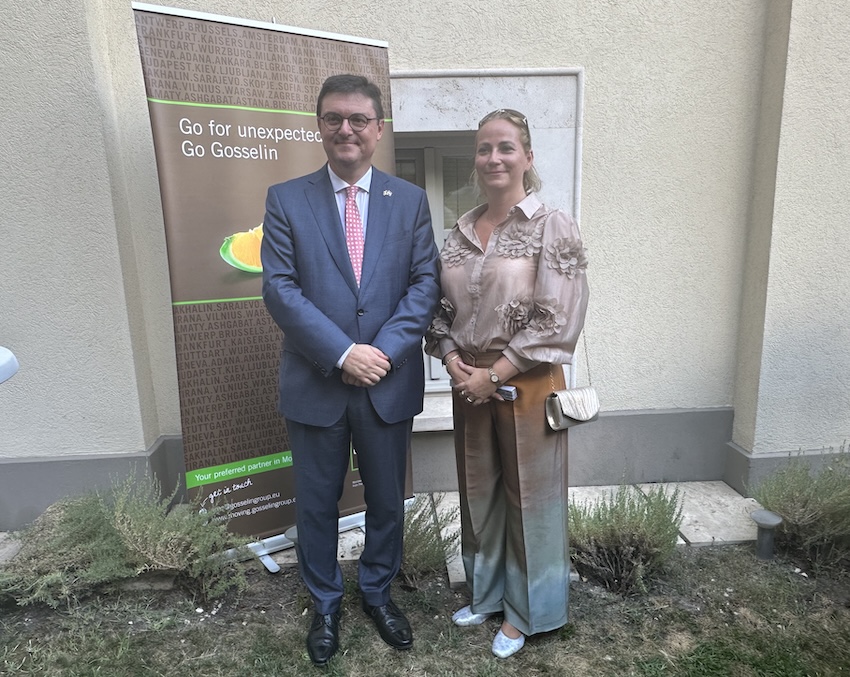
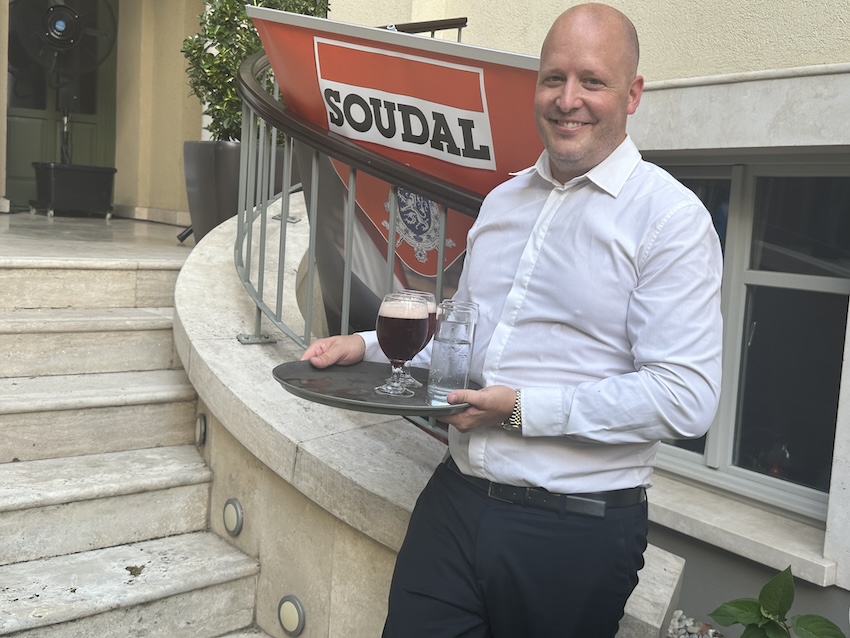
A big Köszönöm (thank you) to my Embassy colleagues for organising not only this day but all the days in our embassy, first and foremost Anita, Krisztina, Kornélia, Anna, Józsi, Zoltán, Ibolya, Tiffany, Joseph, Yasmine, and of course my deputy Raphaël Schröder, as well as our Trade and Investment Counsellors for Flanders and Wallonia, Szonja Bender and Edit Ránky, and Zsuzsa Lénart from the Flemish delegation. Finally, my thanks to all of you for your presence here.
Köszönöm, hogy megtiszteltek jelenlétükkel, és szép estét kívánok egy pohár jó hideg belga sörrel. Egészségünkre (Thank you for honouring us with your presence, and I wish you a pleasant evening with a glass of good cold Belgian beer. Cheers!)”
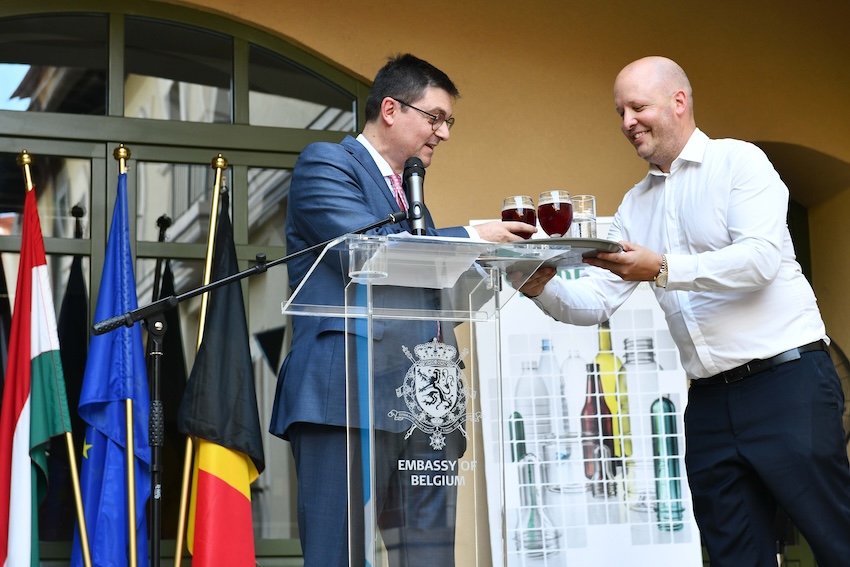
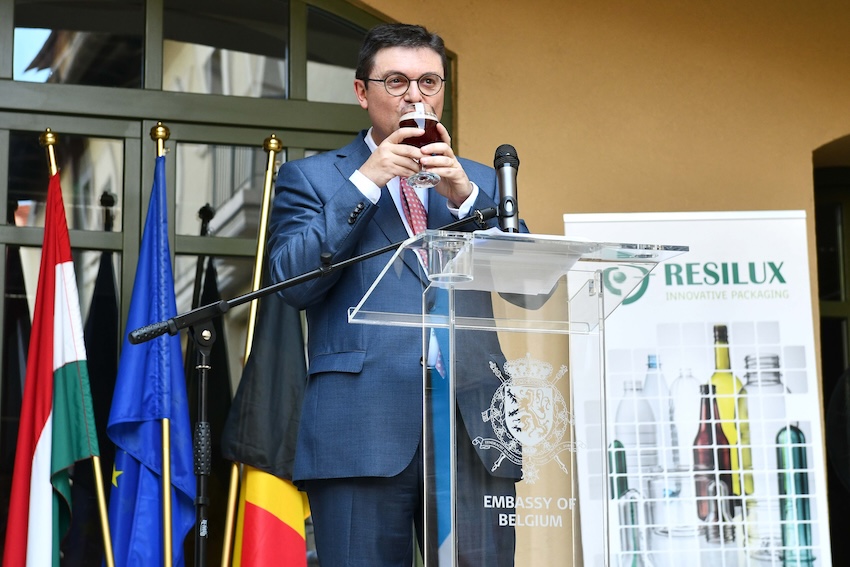
The guests were delighted in Belgium’s renowned cuisine, accompanied by the country’s impressive array of nearly 1,500 types of beer, crafted with a variety of fermentation techniques. Among the culinary treasures served was Belgian Fries, which despite their name are often mistakenly thought to be French. This confusion stems from the fact that in Old English the verb ‘to french’ meant ‘to cut lengthwise’, which contributed to the association with France.
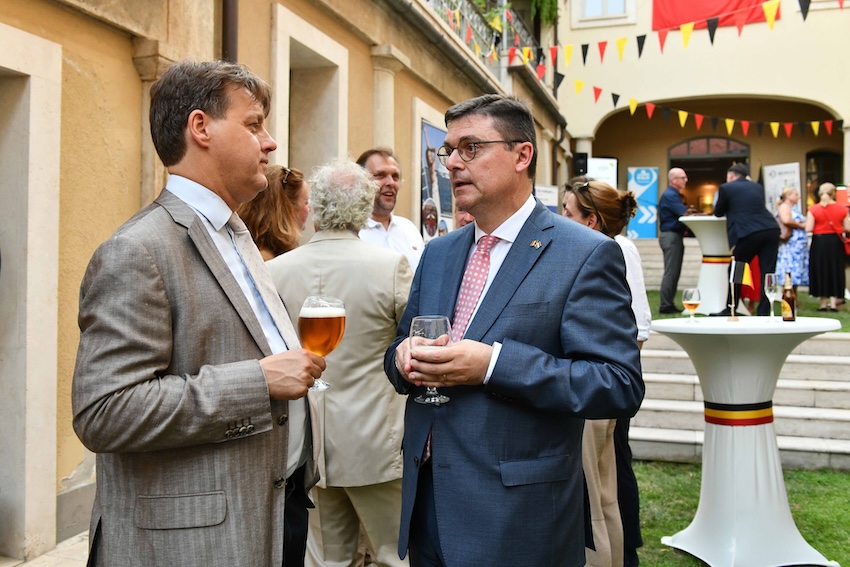
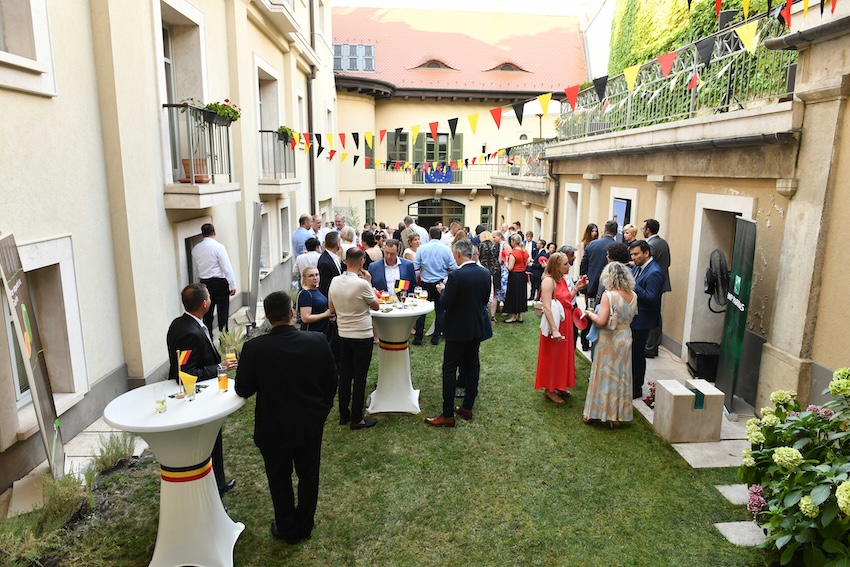
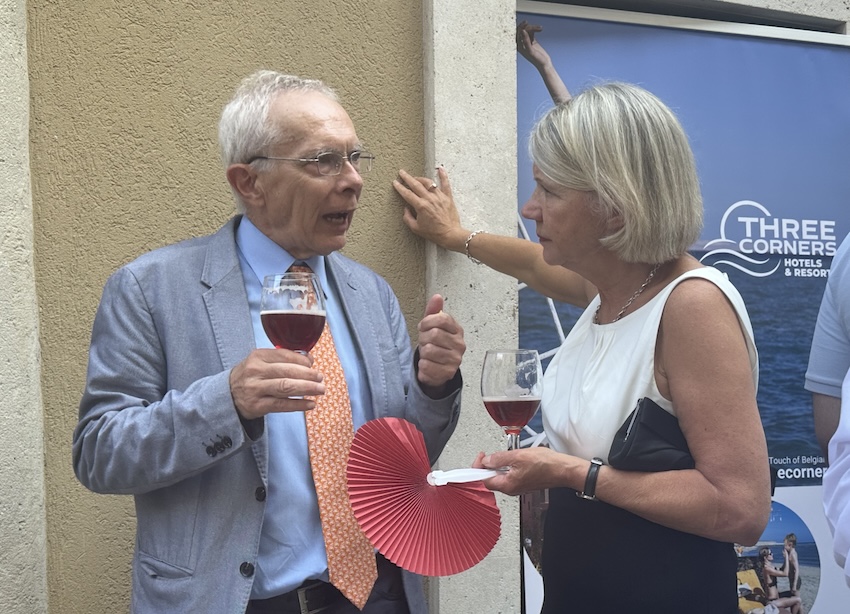
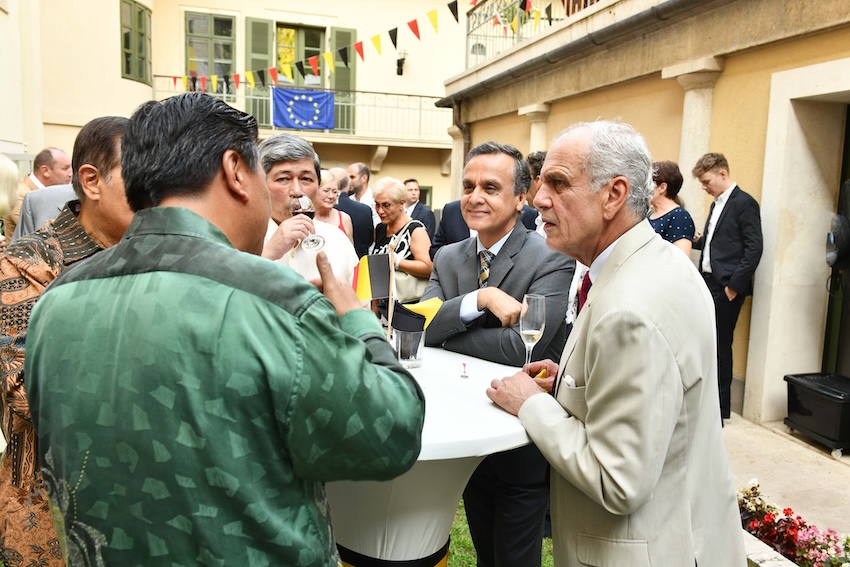
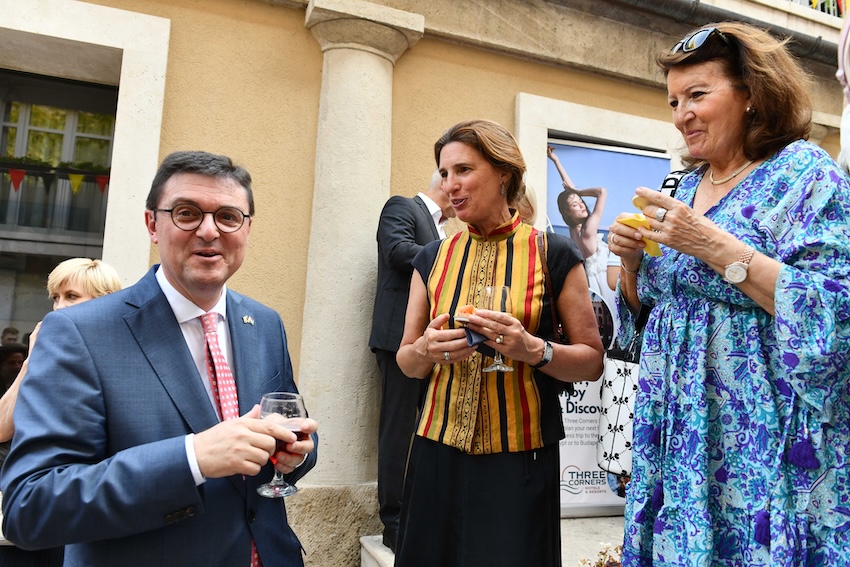
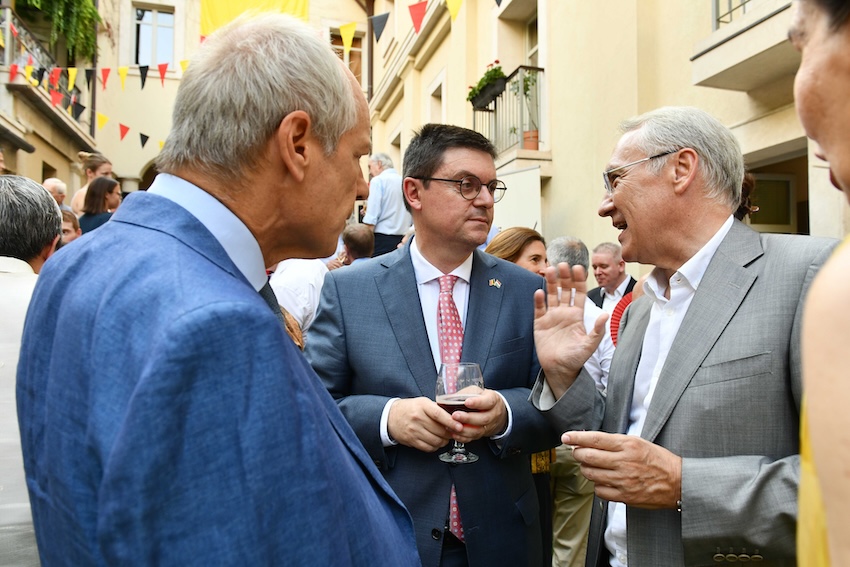
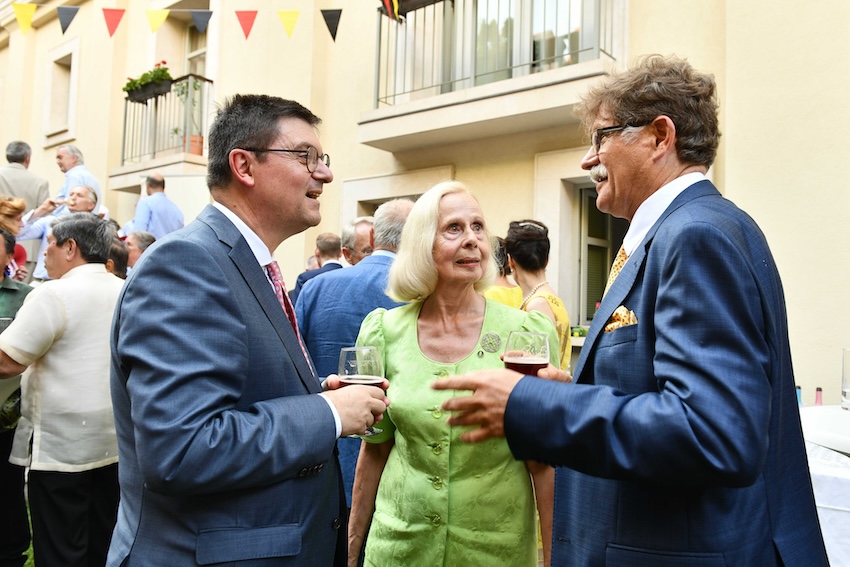
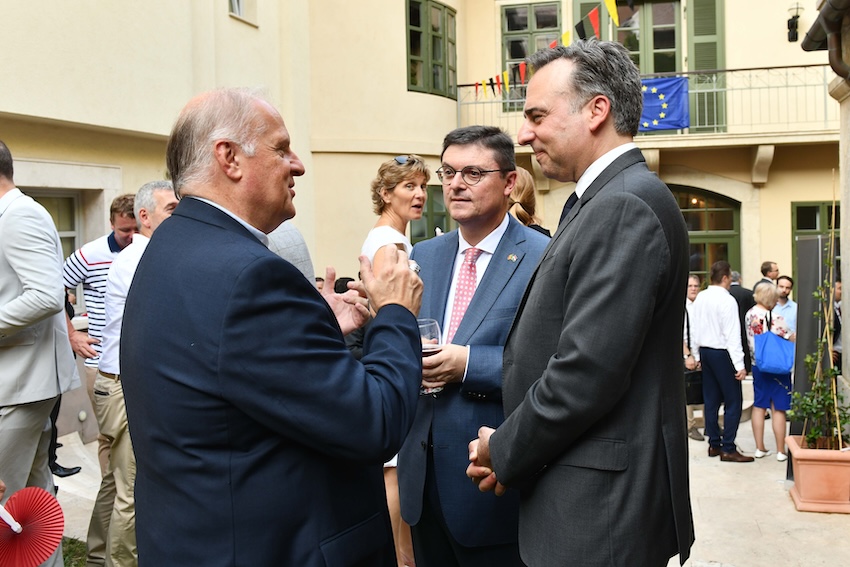
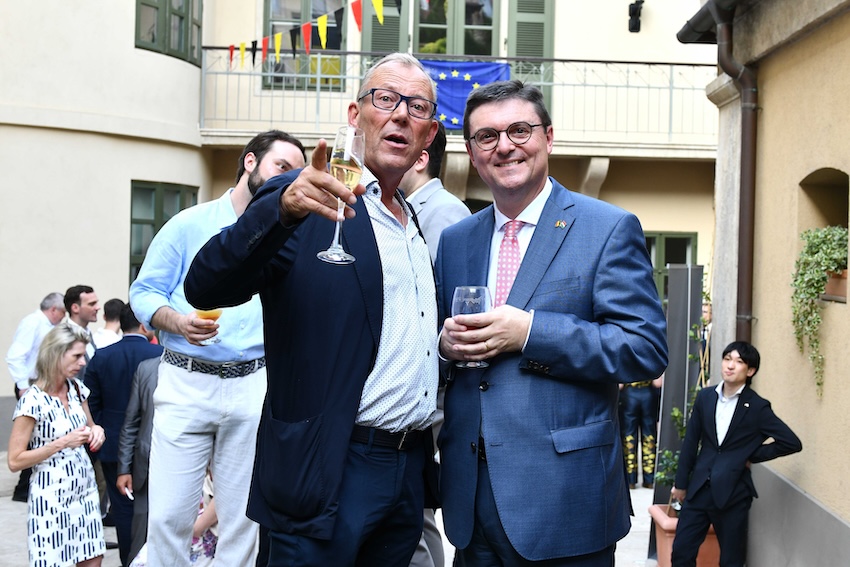
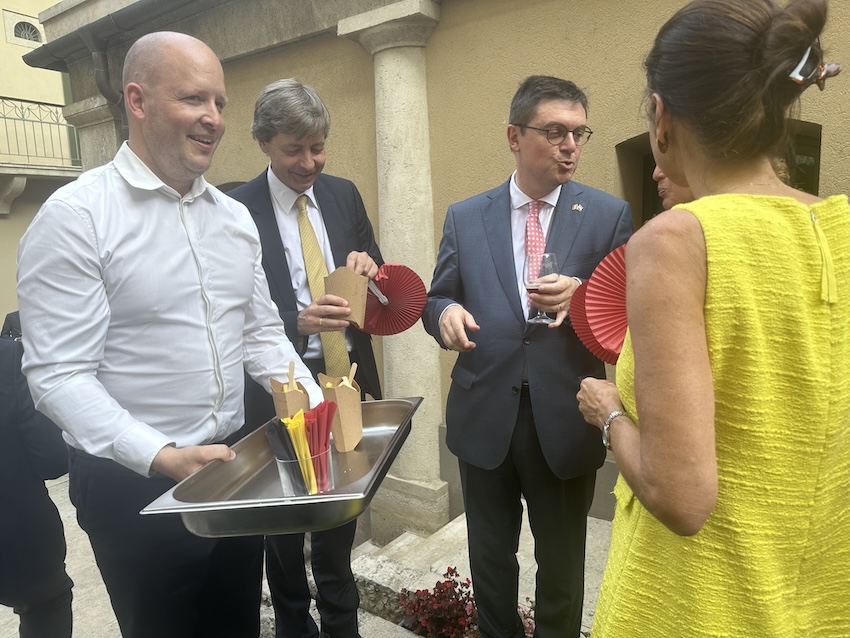
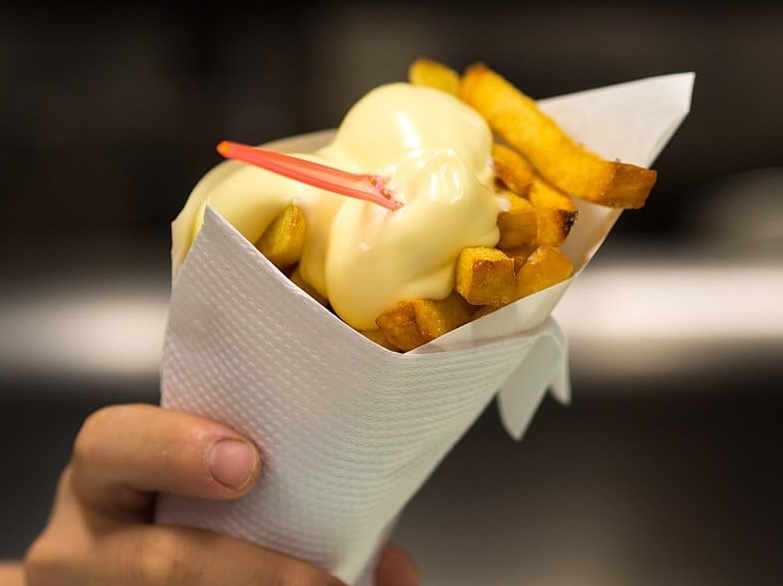
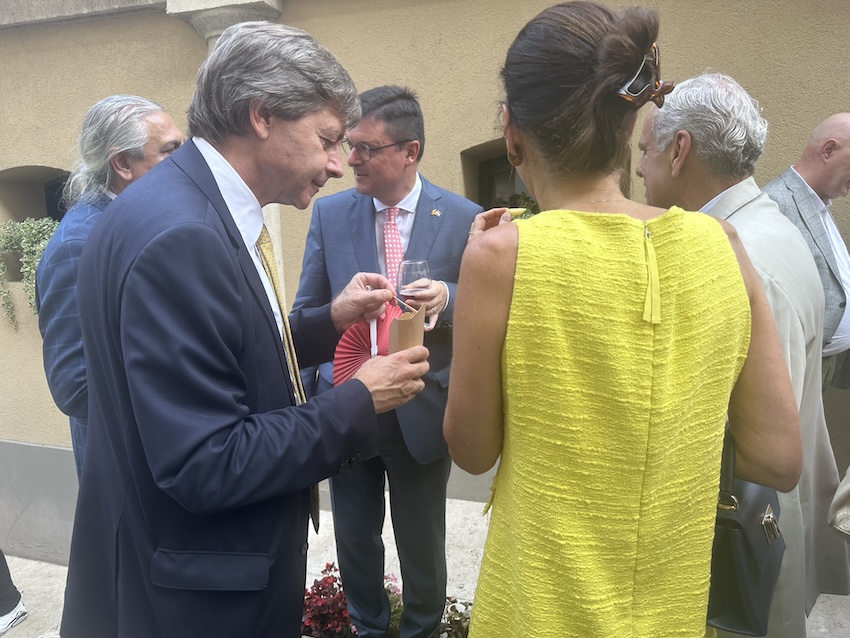
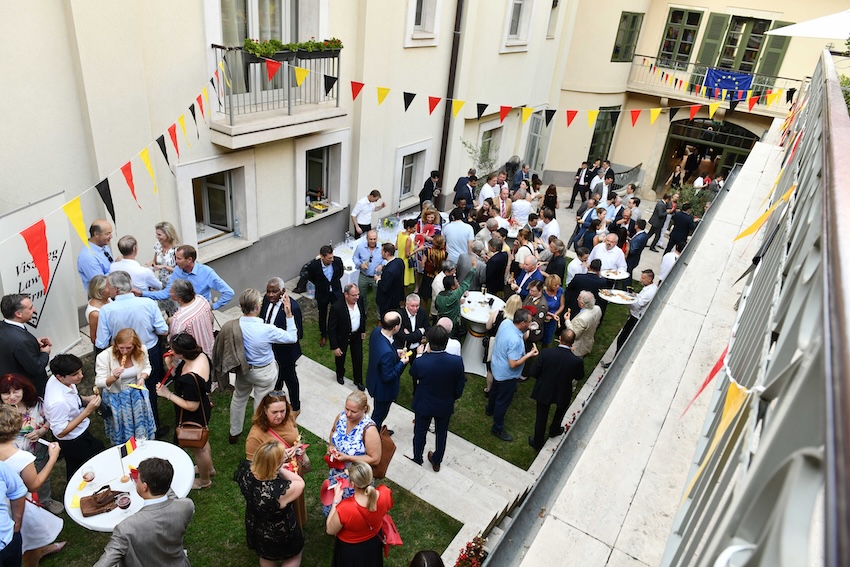
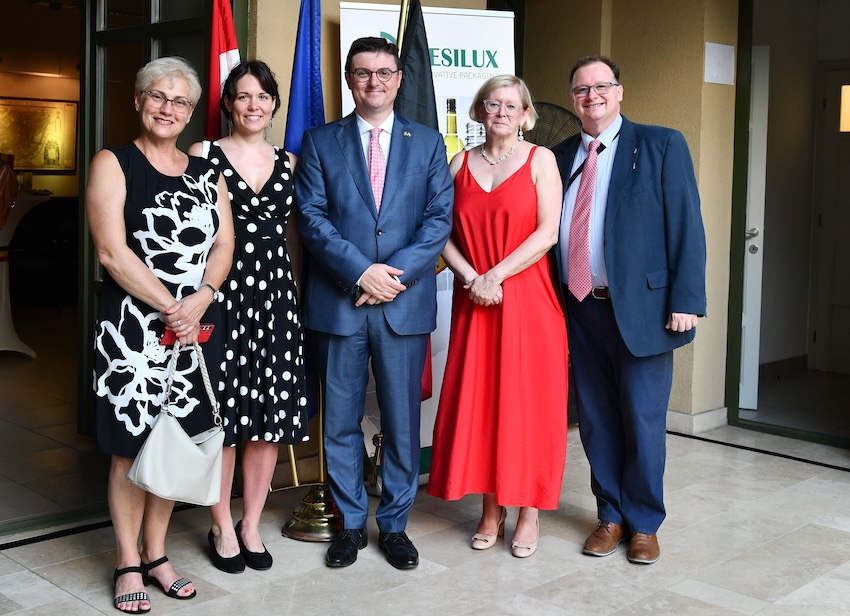
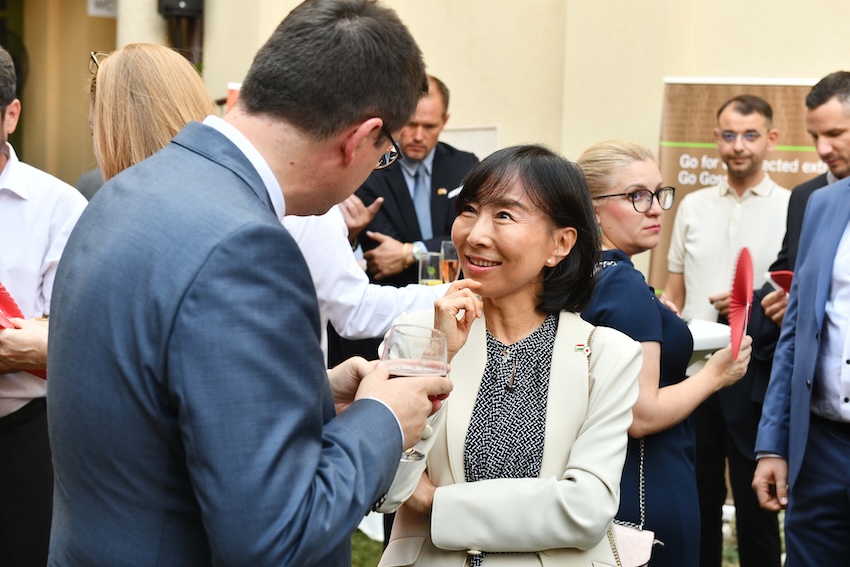
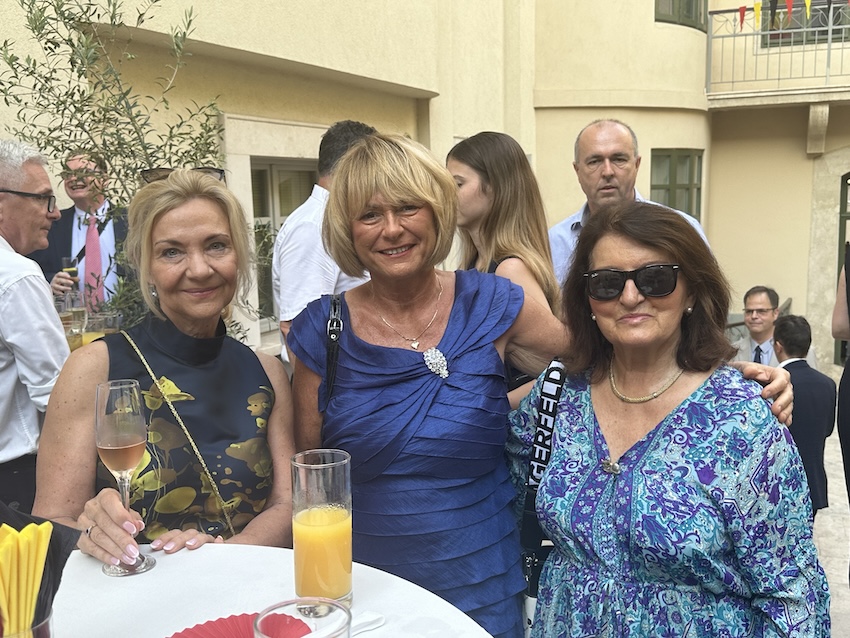
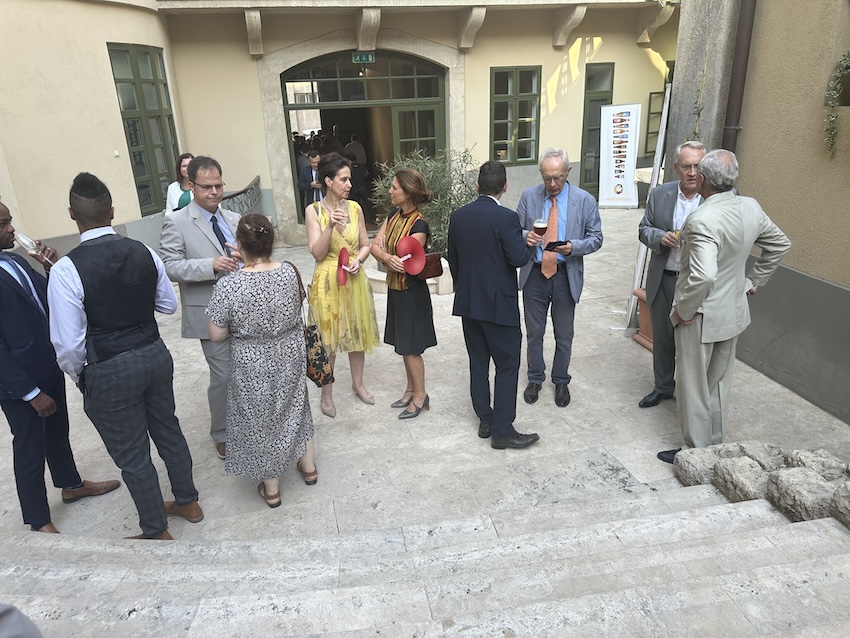
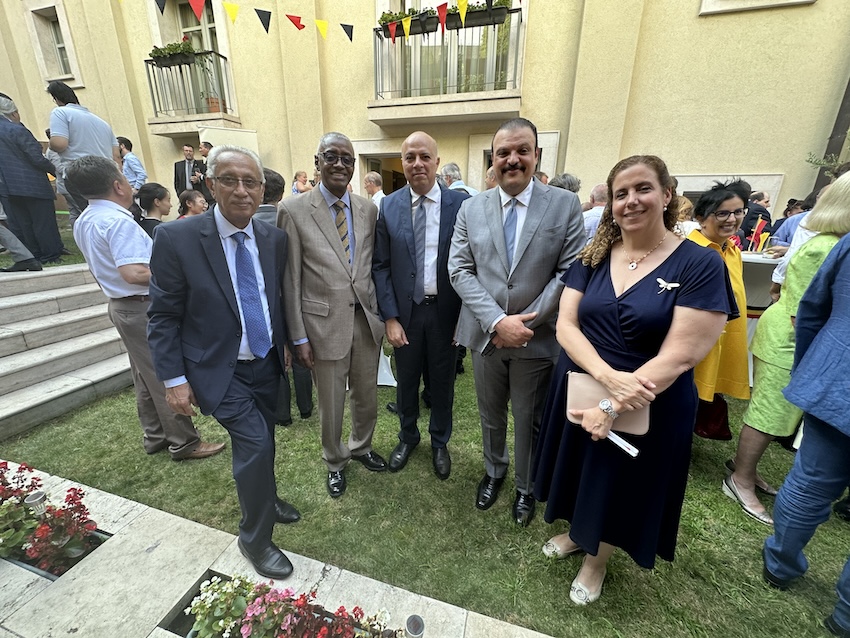
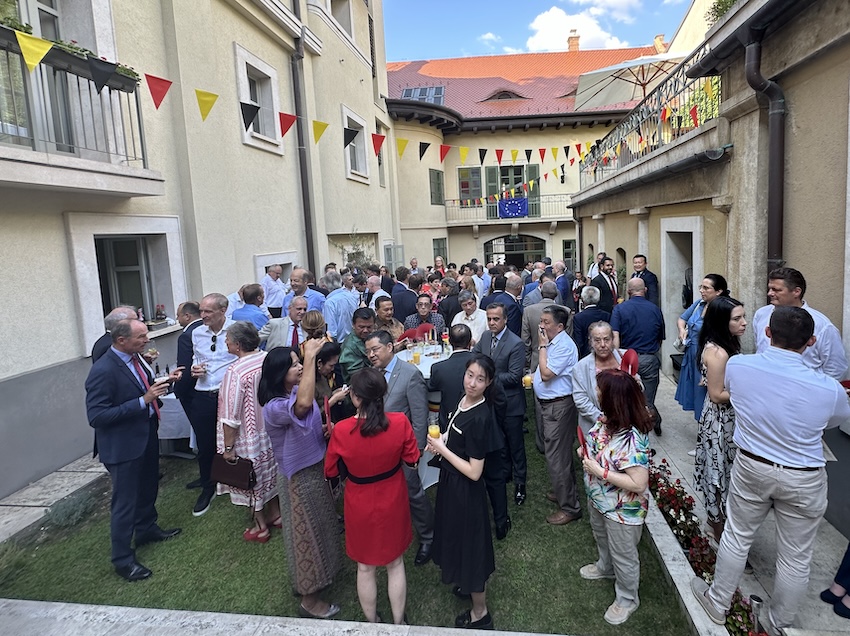
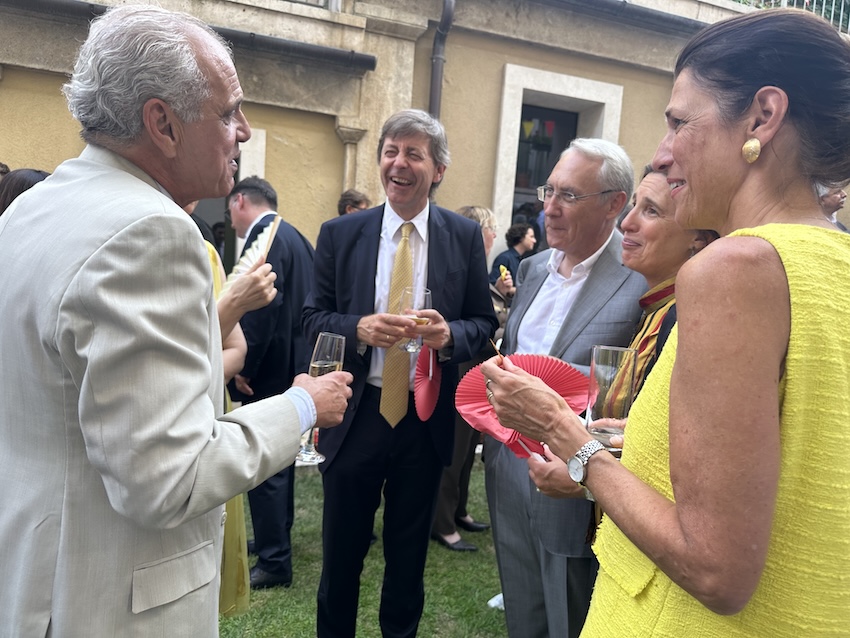
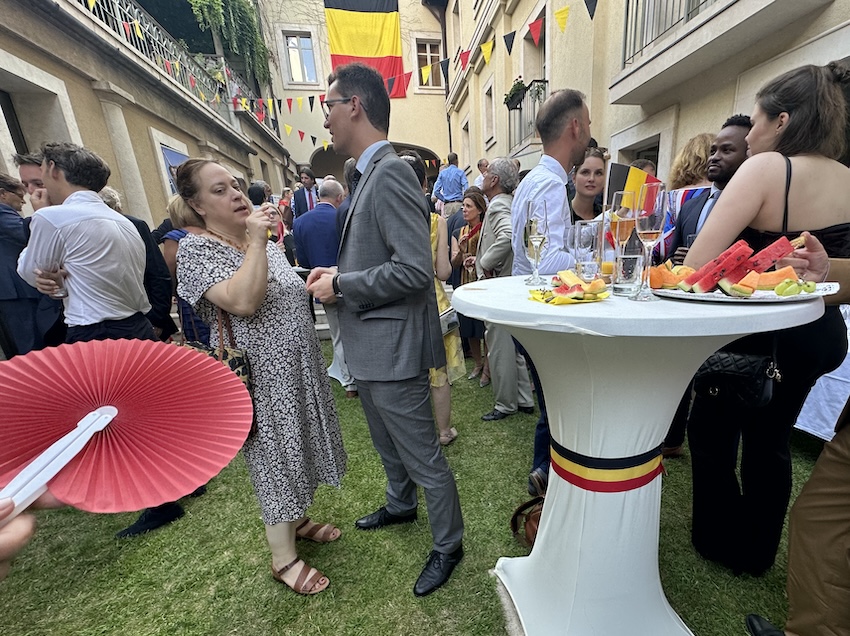
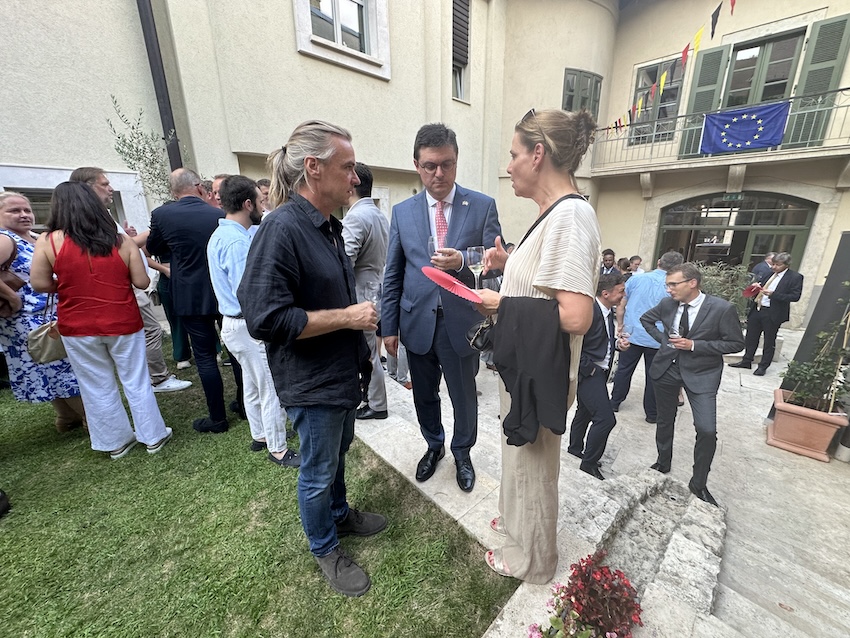
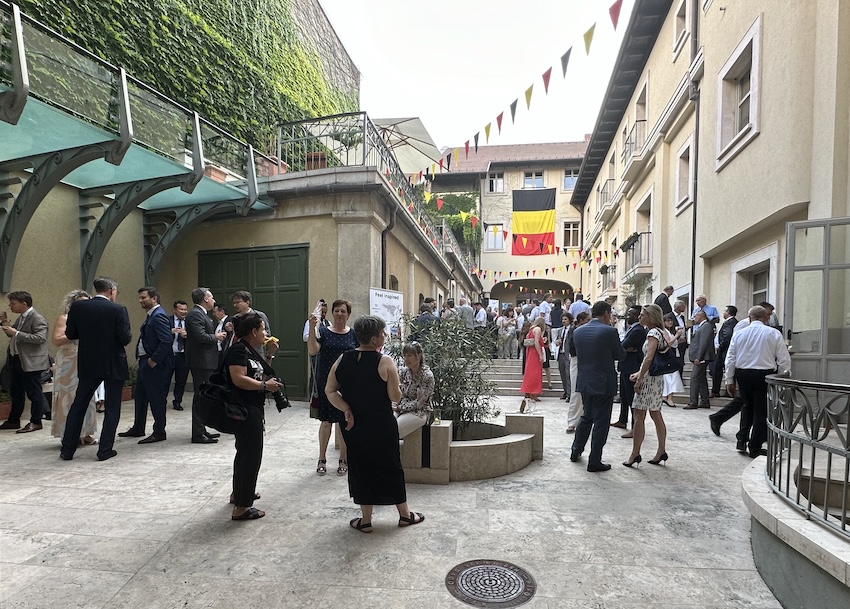
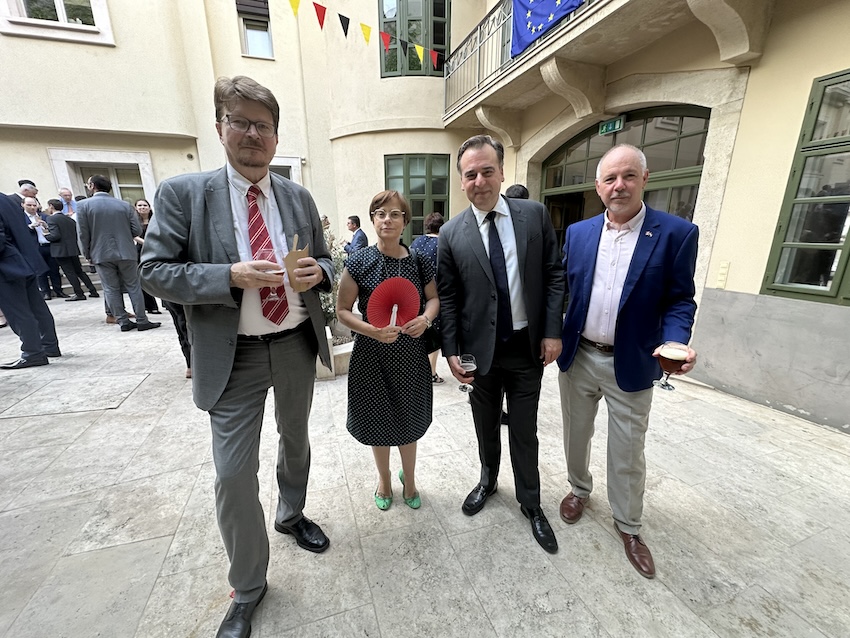
The esteemed Belgian beer culture, which proudly stands on UNESCO’s list of the Intangible Cultural Heritage of Humanity, was also celebrated. With a brewing tradition dating back to the 12th century and today over 235 breweries producing some of the world’s finest beers, Belgium is considered a paragon of brewing excellence.
The evening was further enhanced by live performances from the extraordinary musicians of Romano Glaszo, adding a vibrant touch to the event.
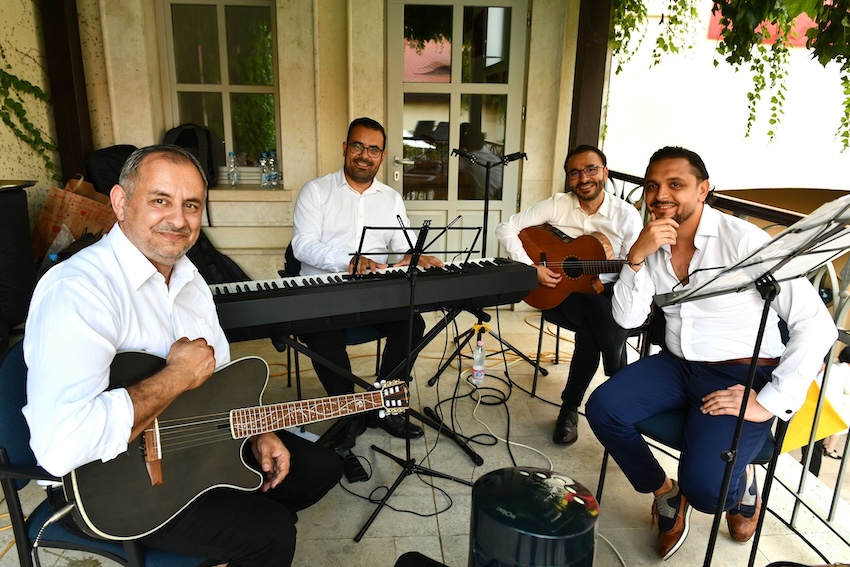
Source: Embassy of the Kingdom of Belgium
Photos by the Embassy of the Kingdom of Belgium and DPA





